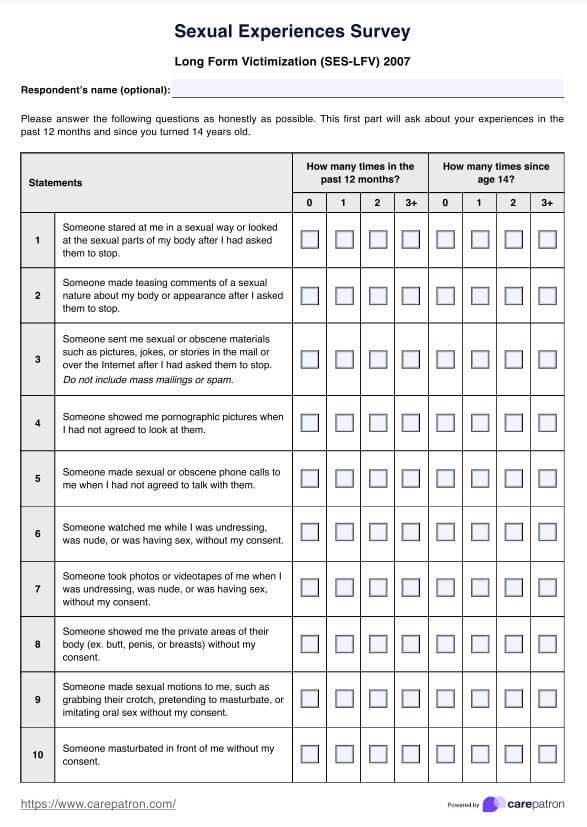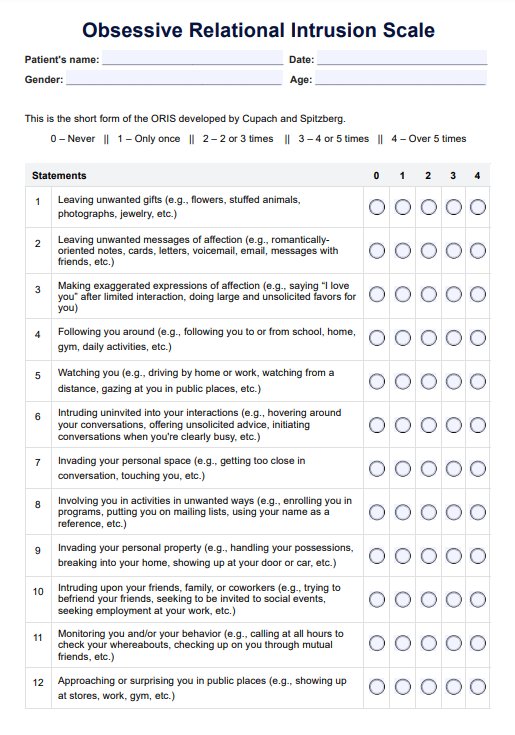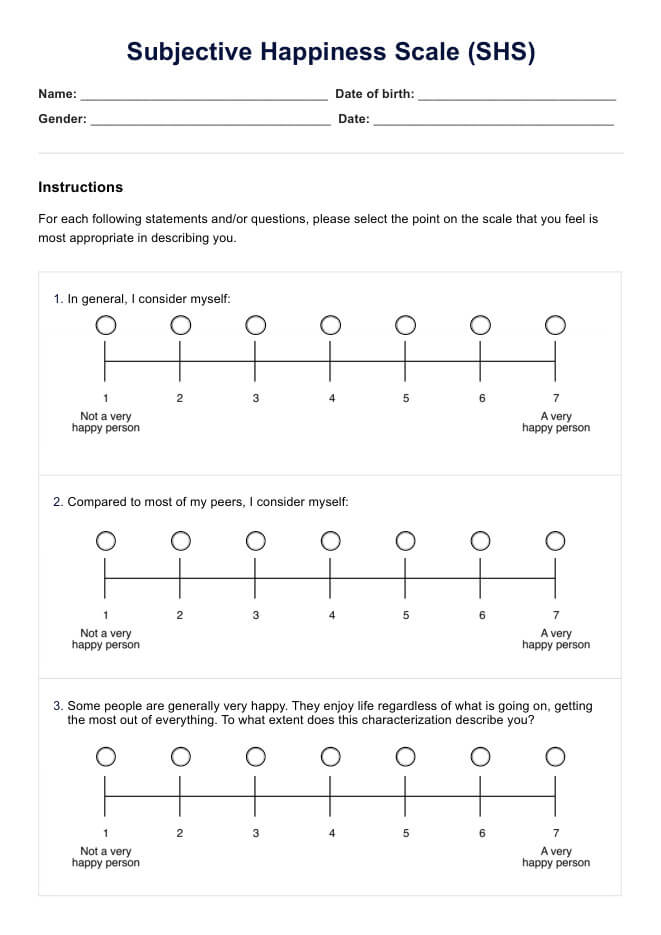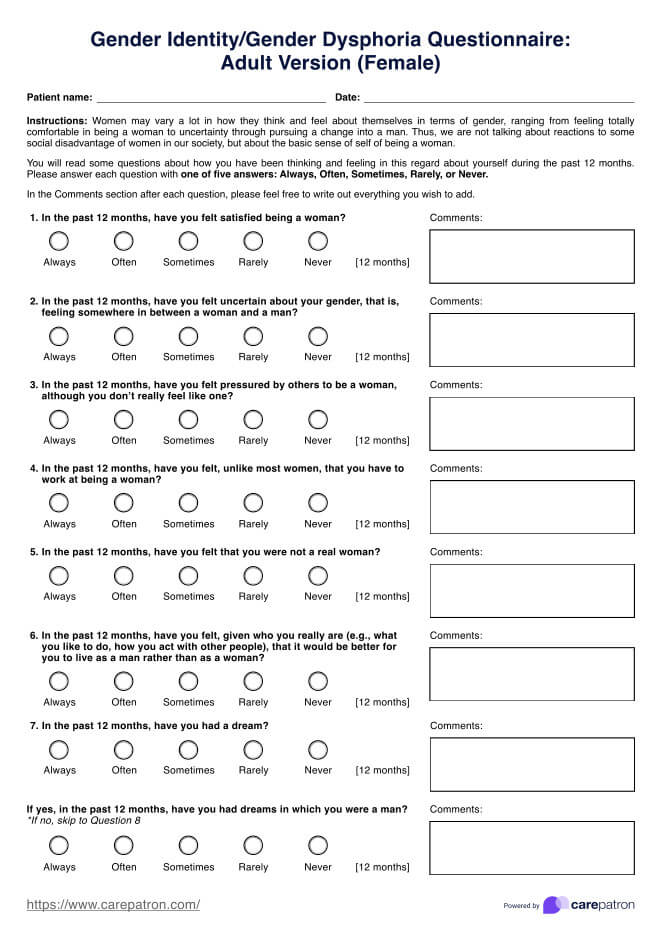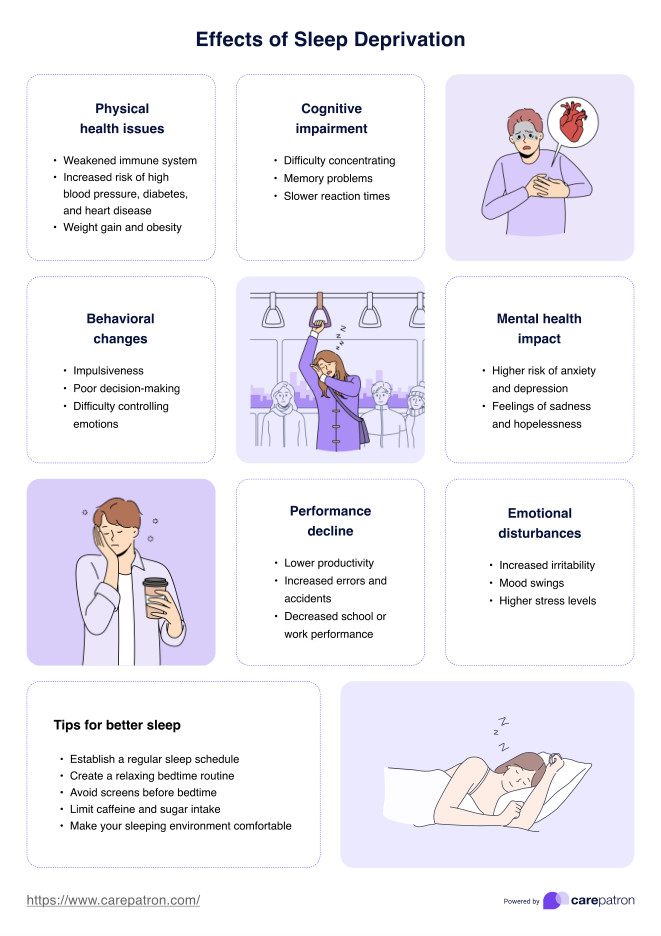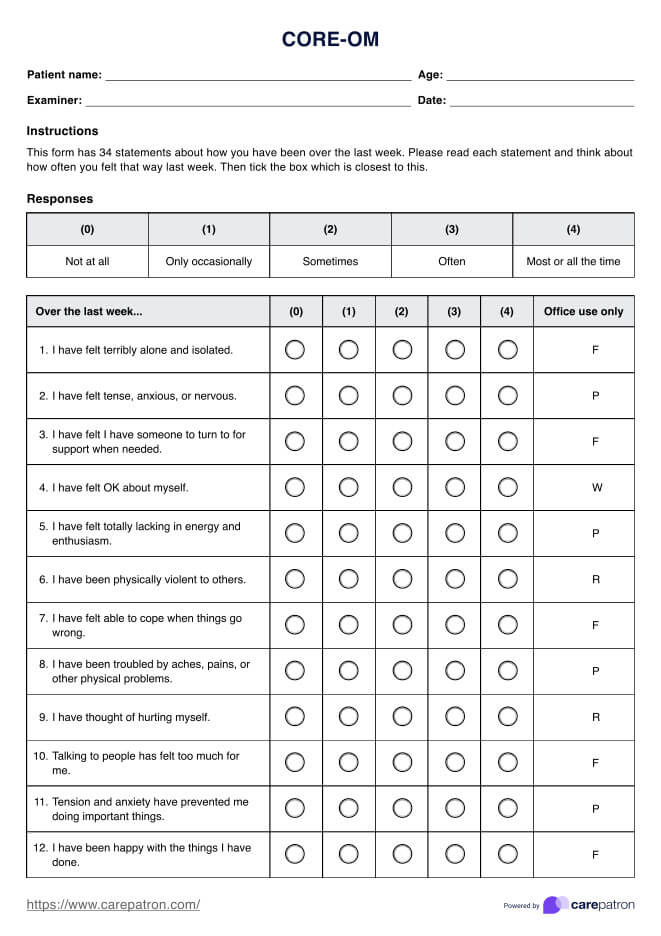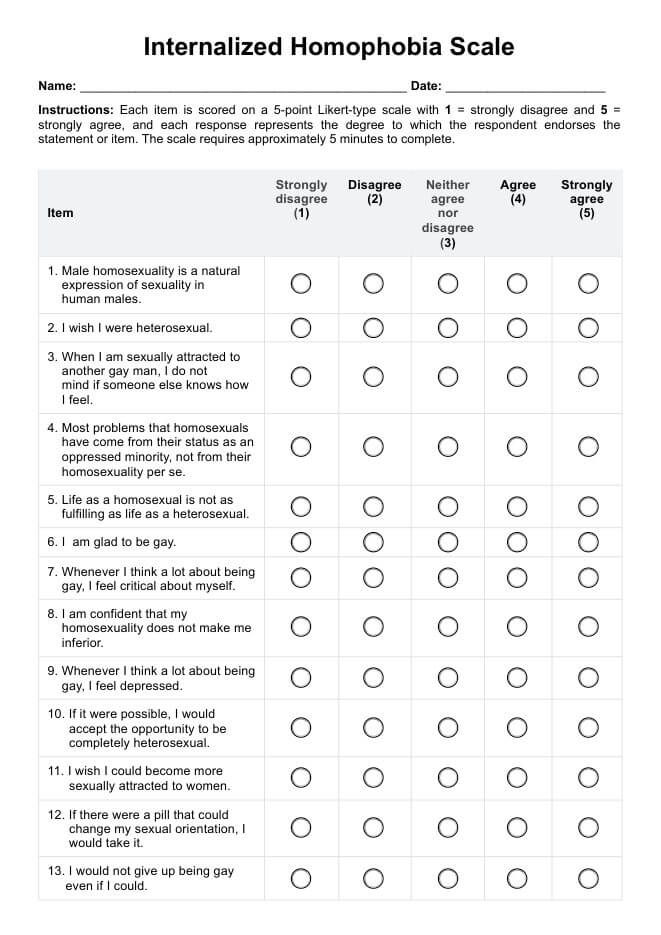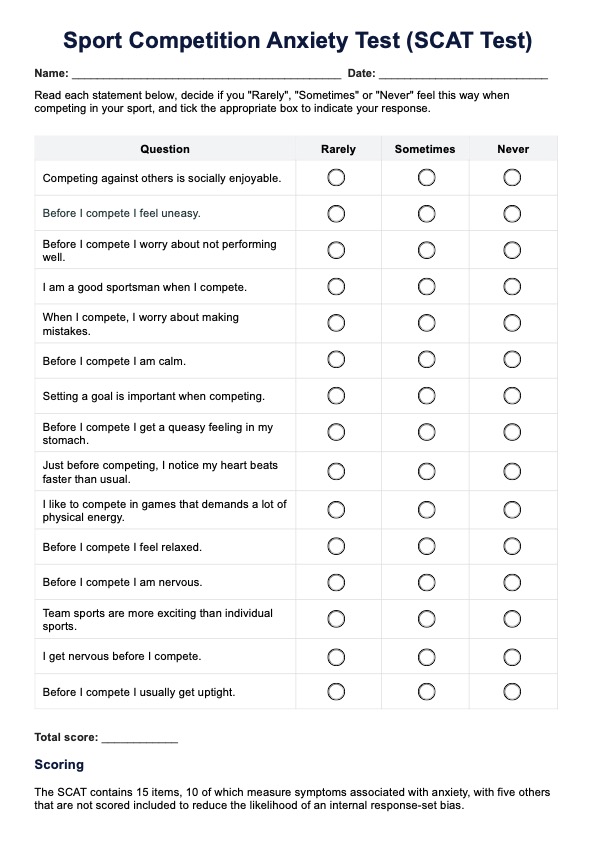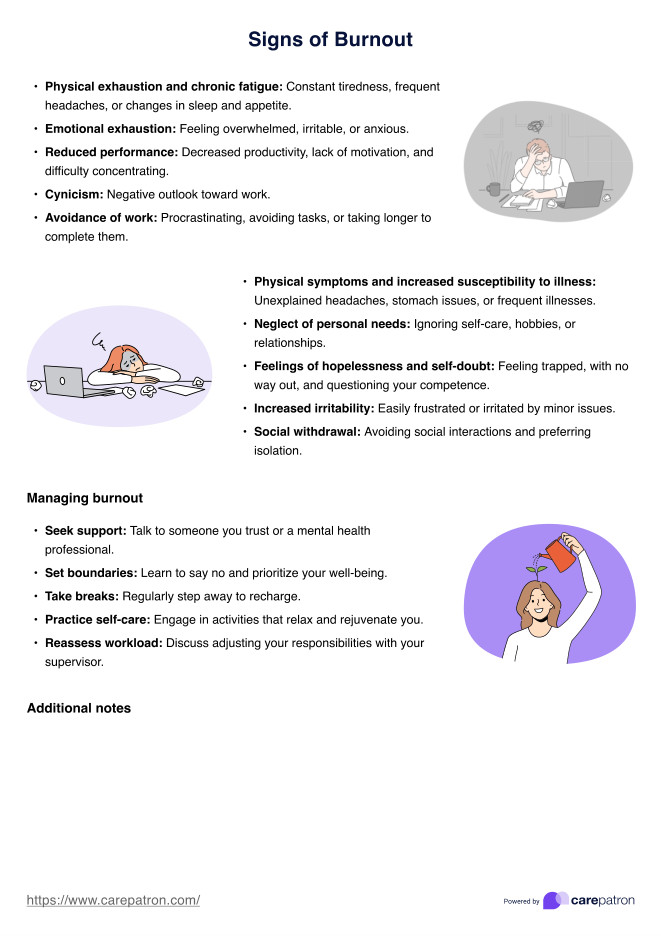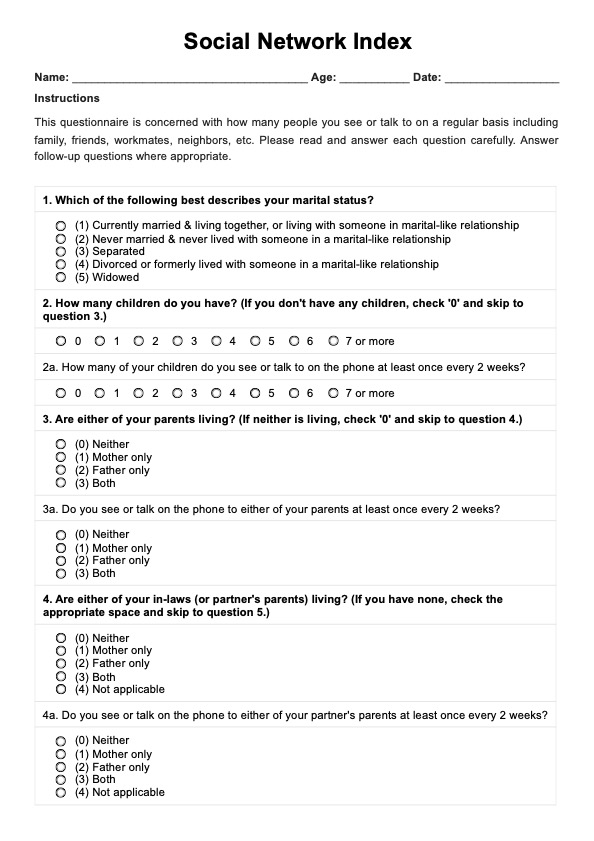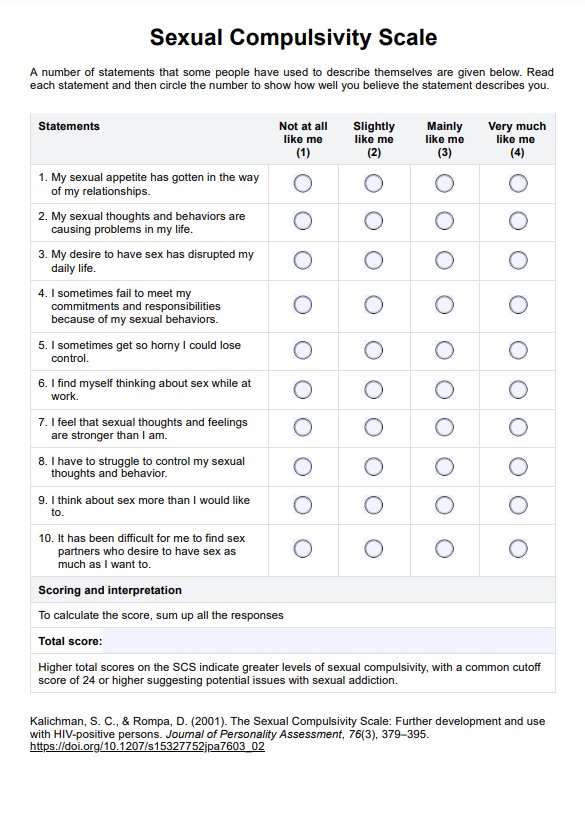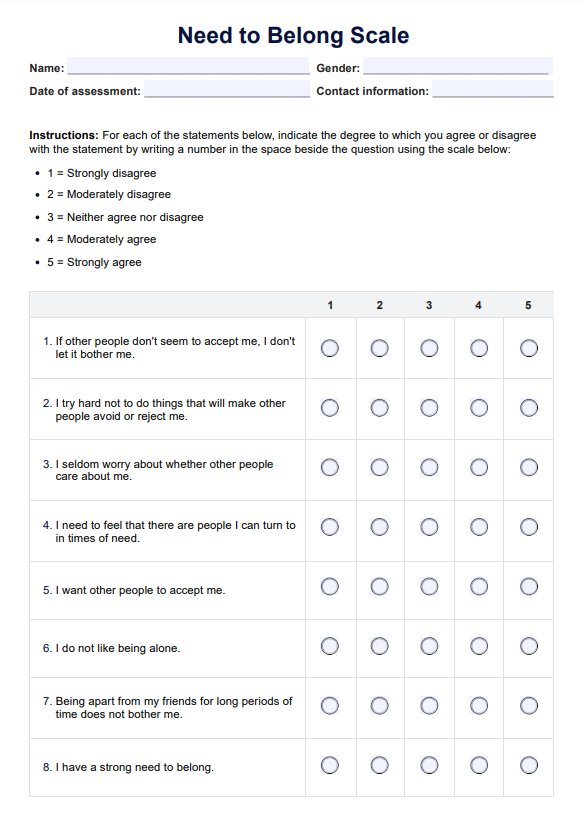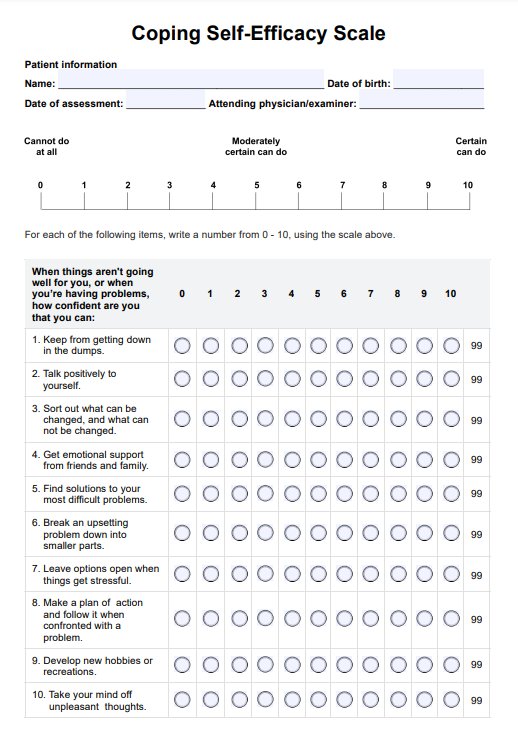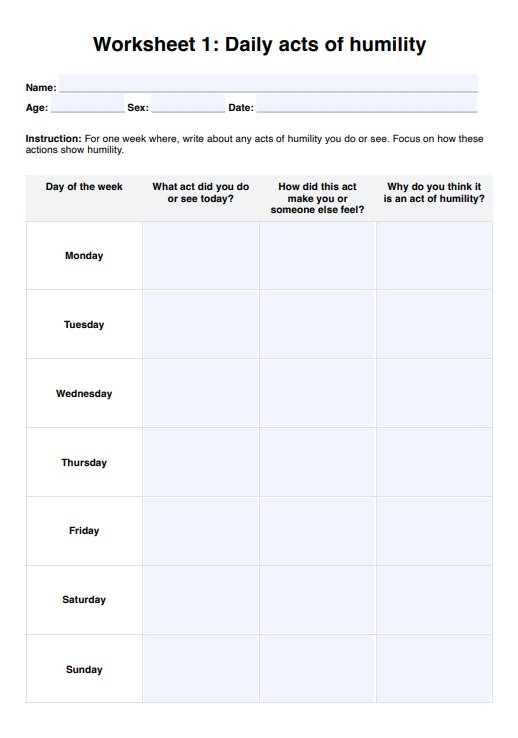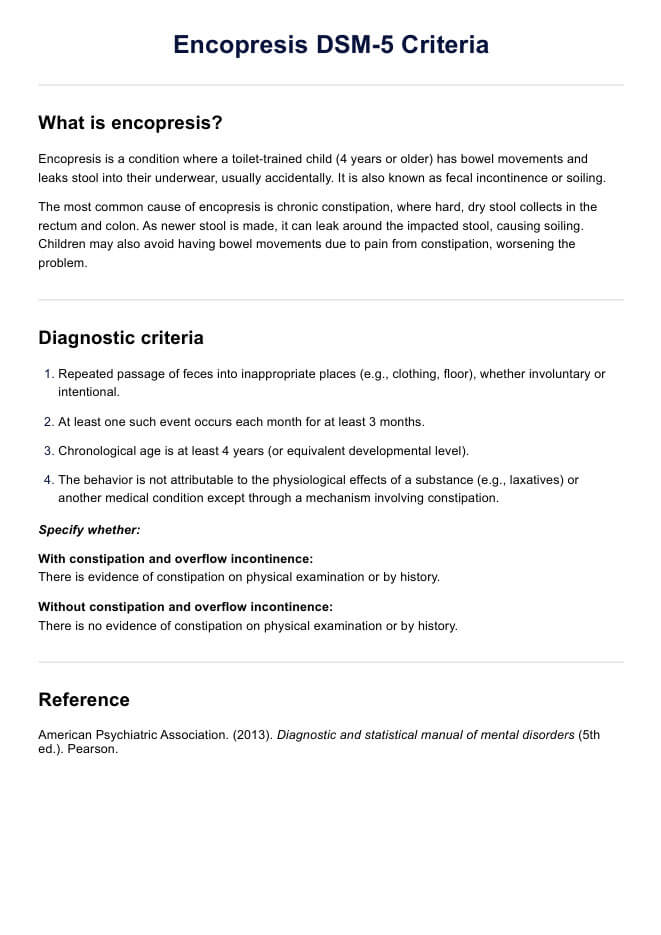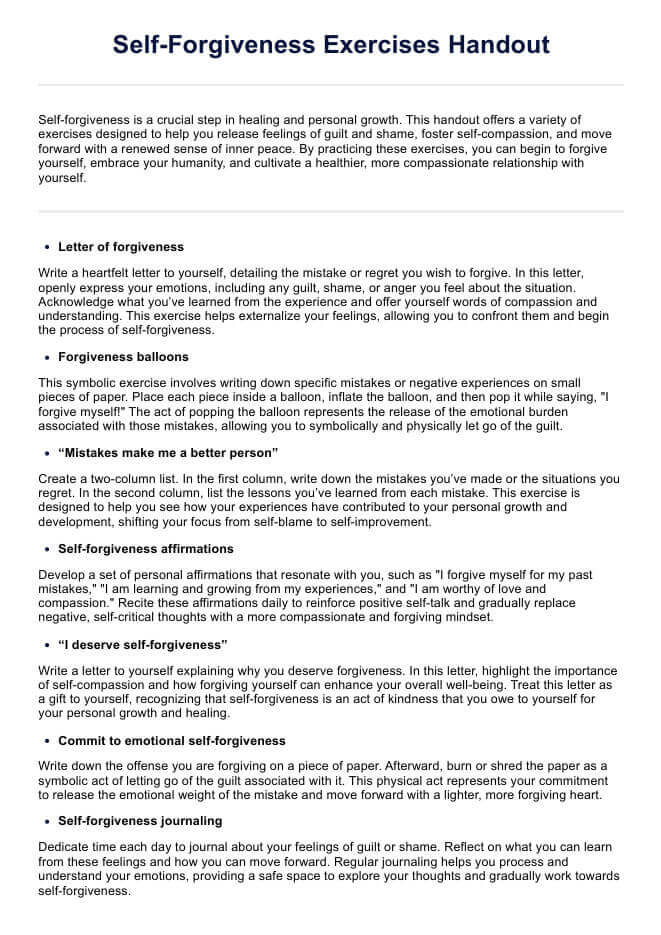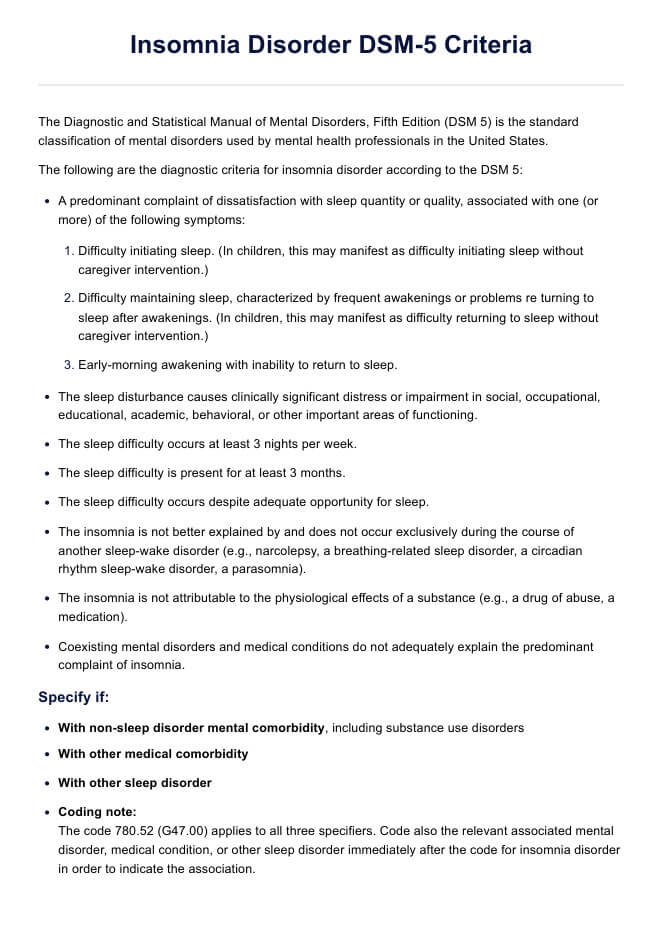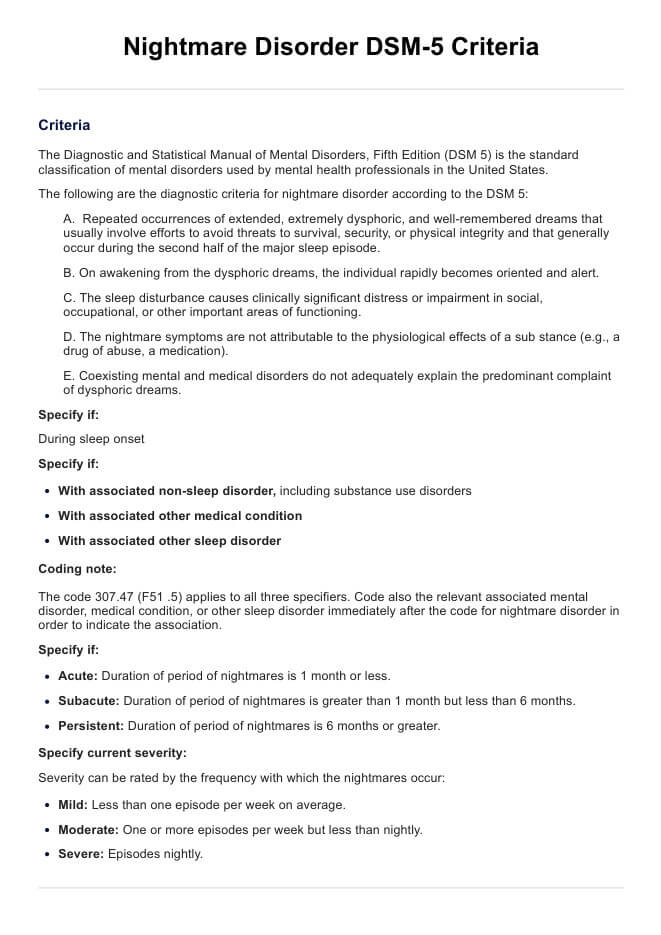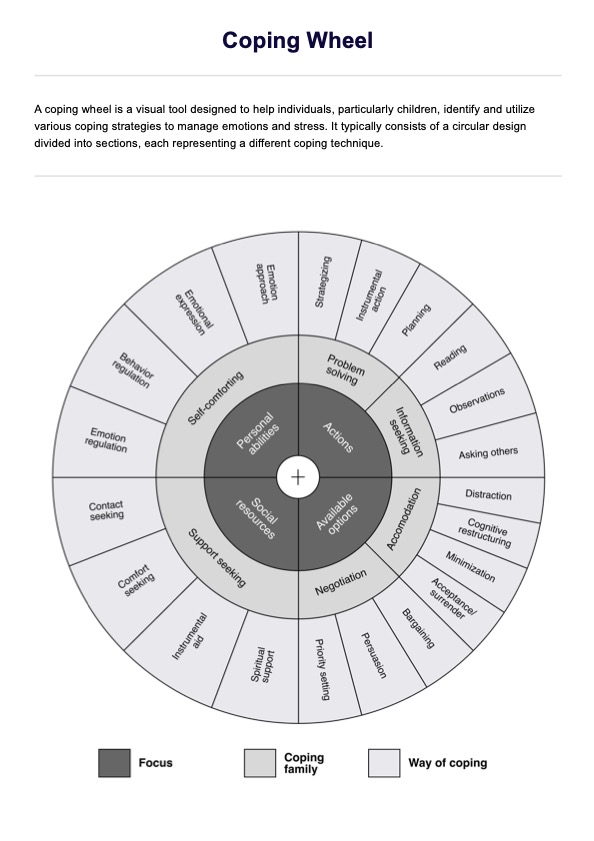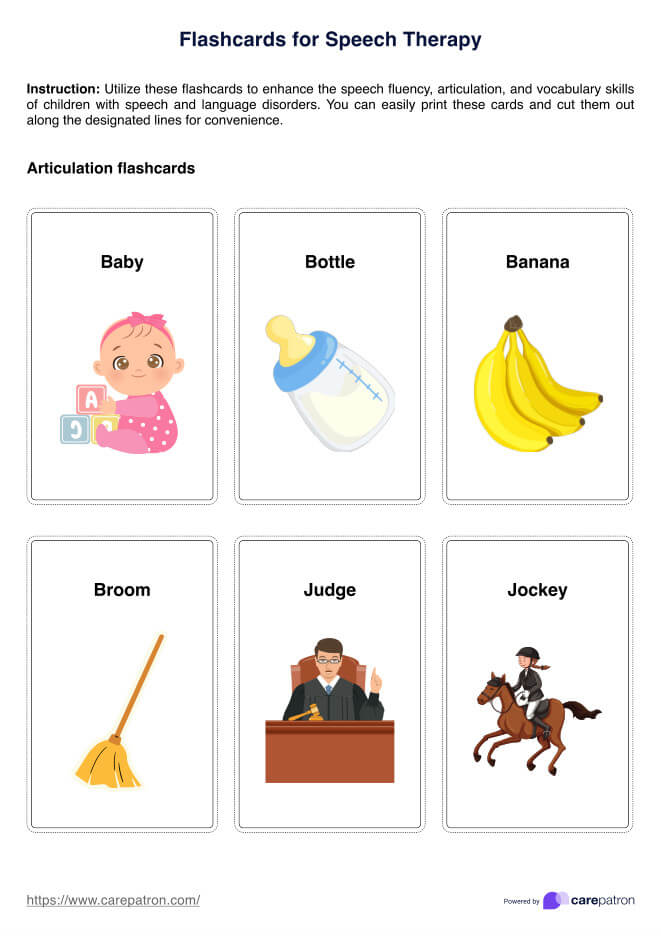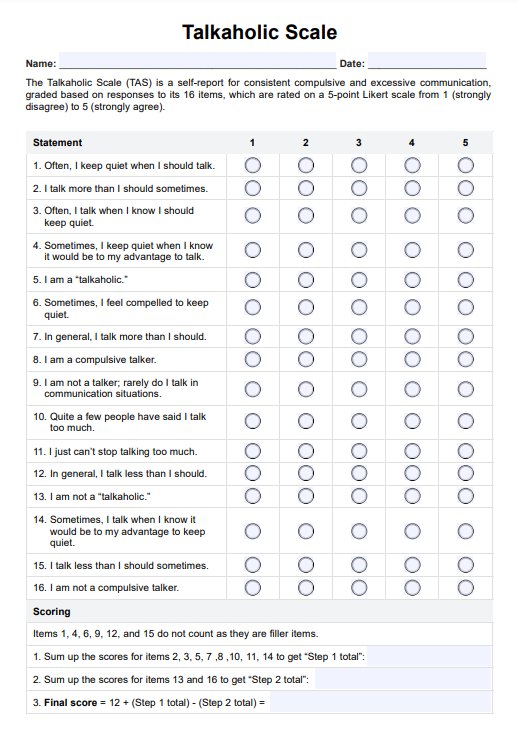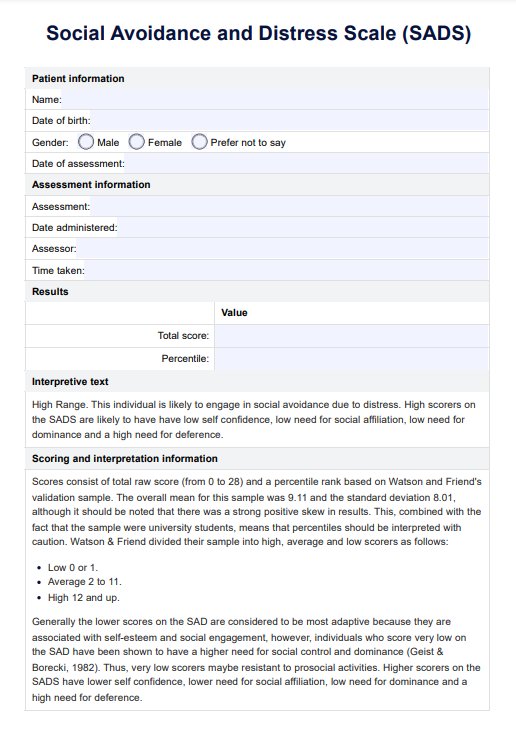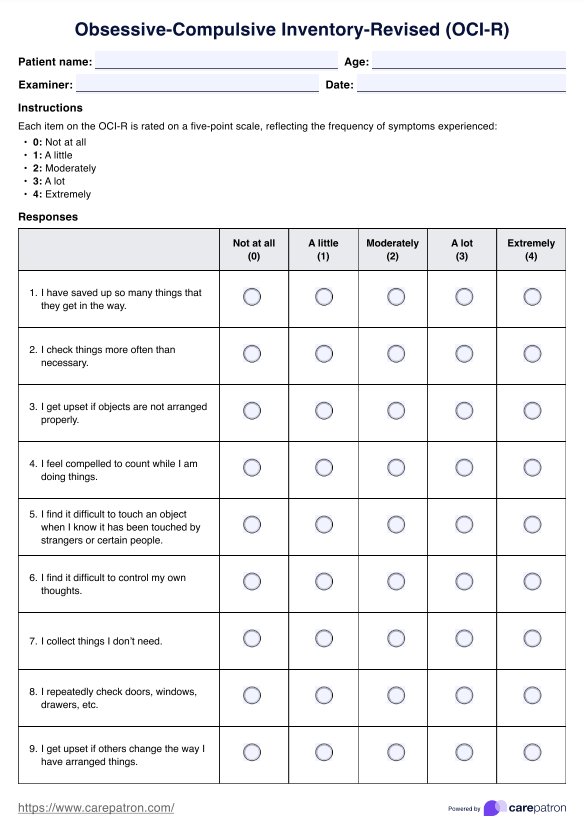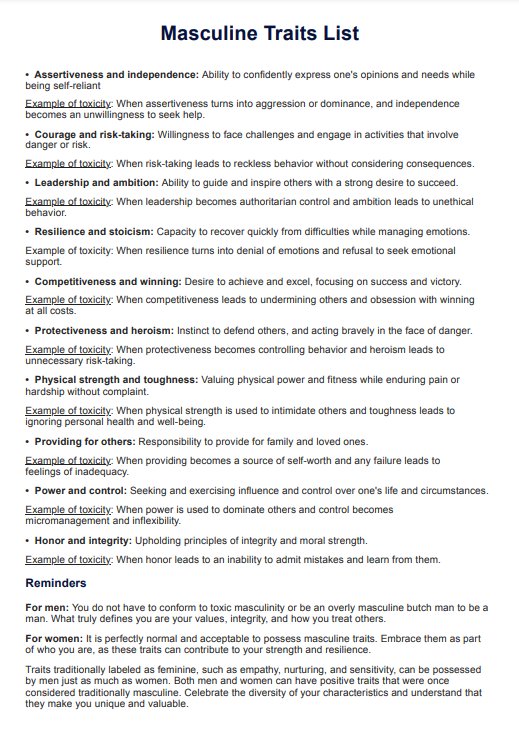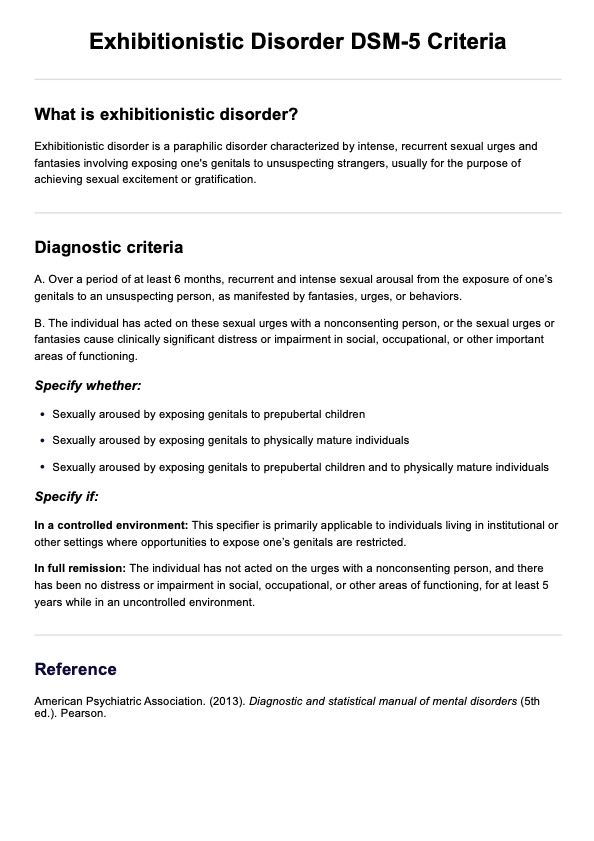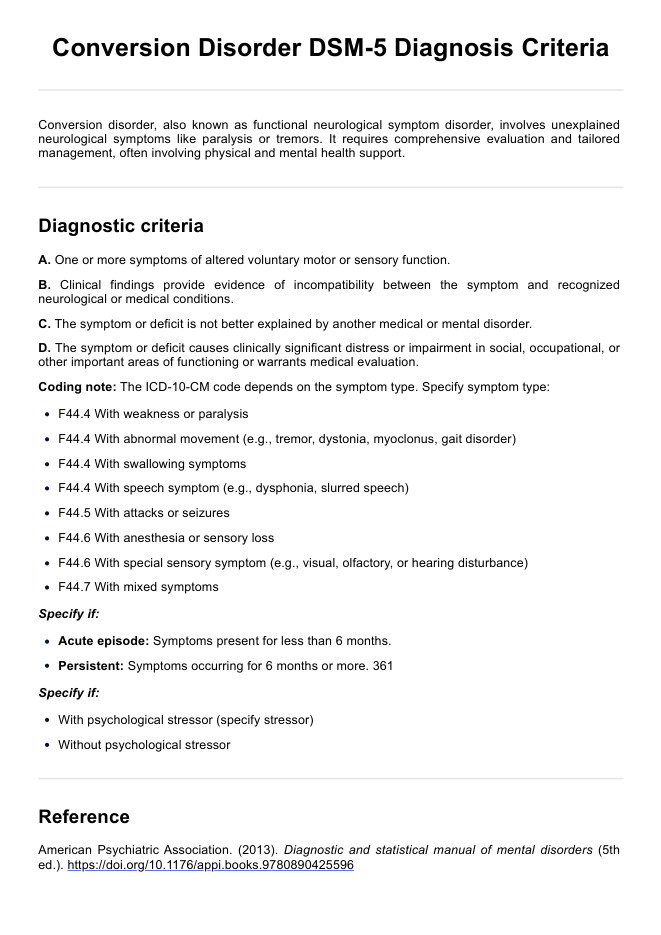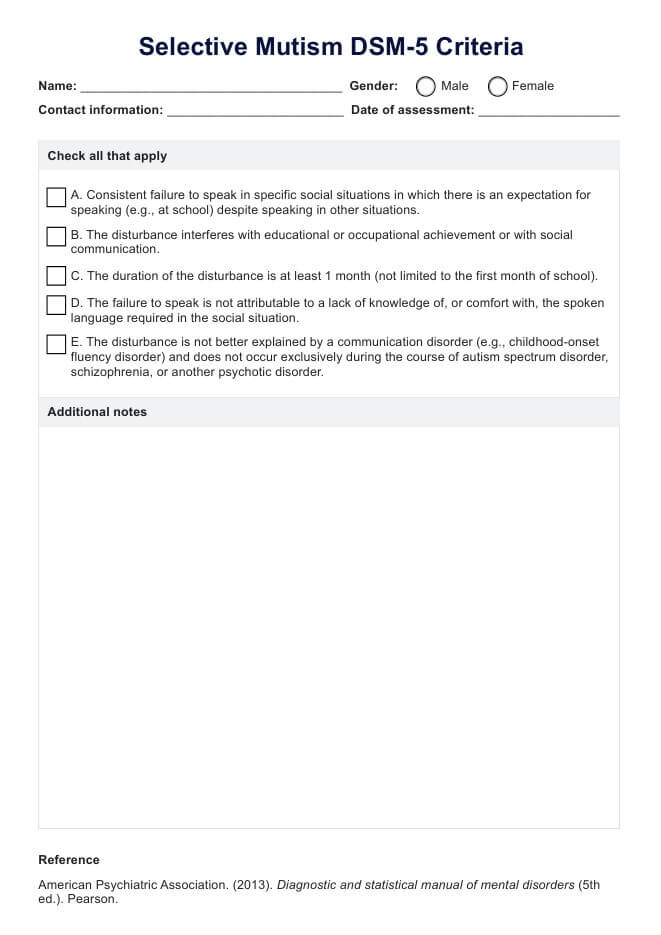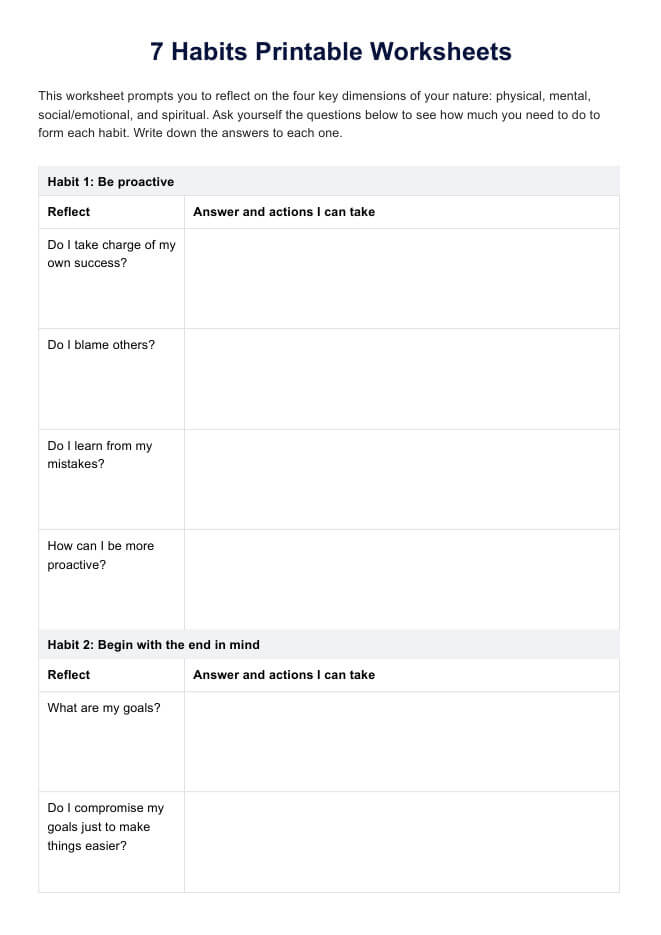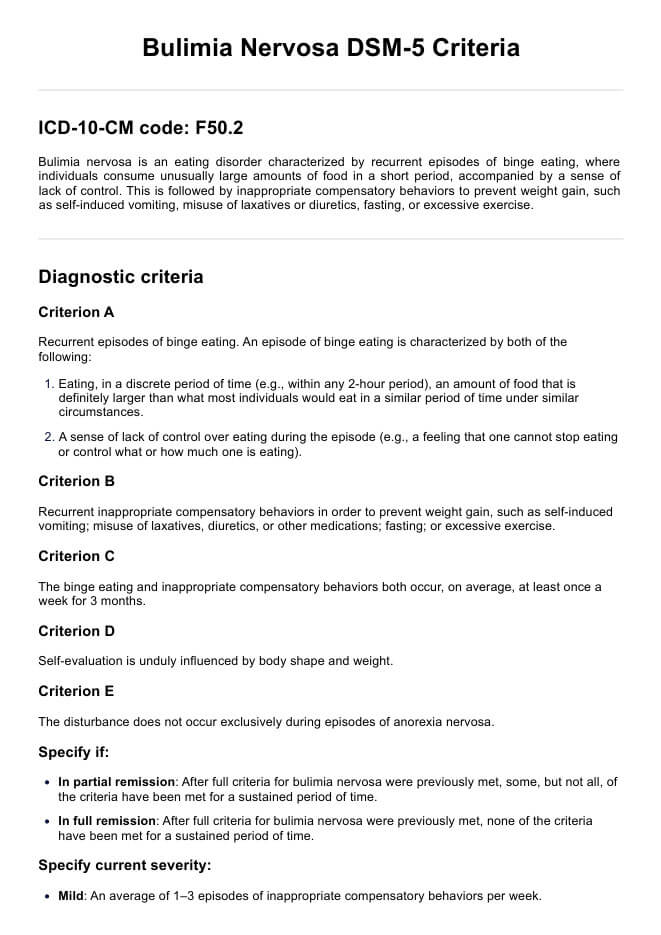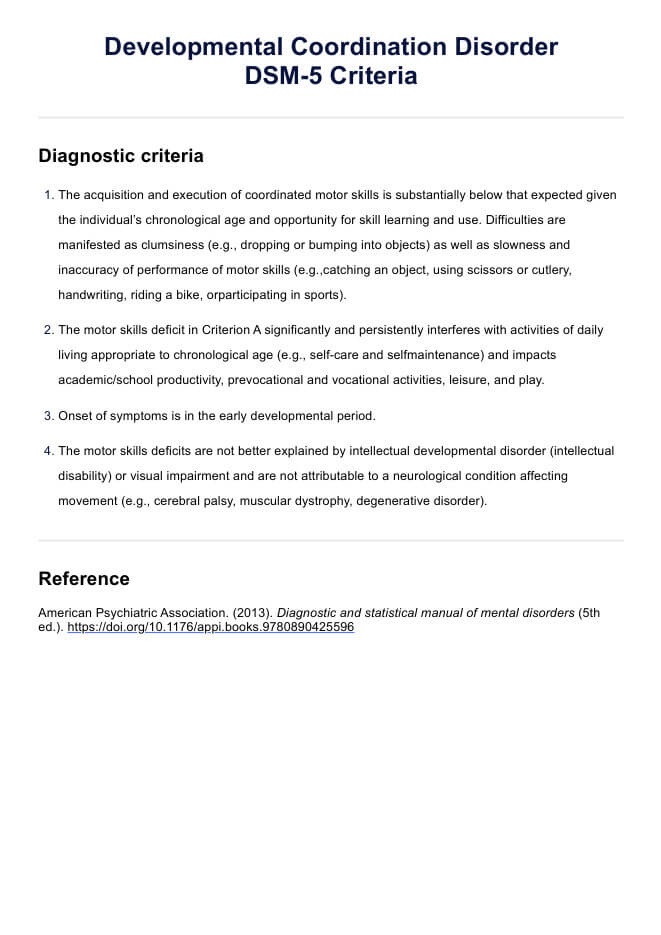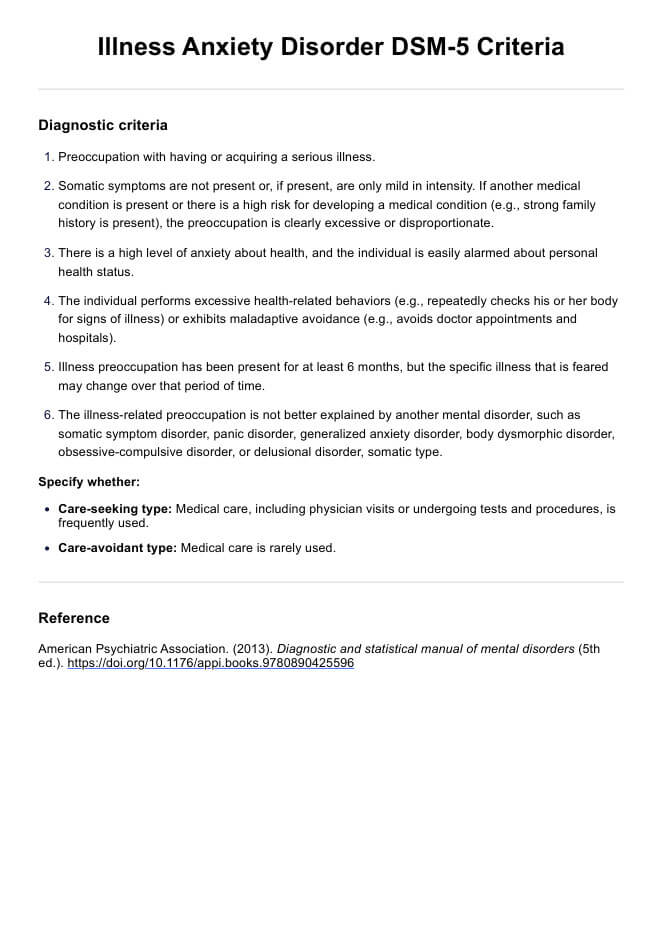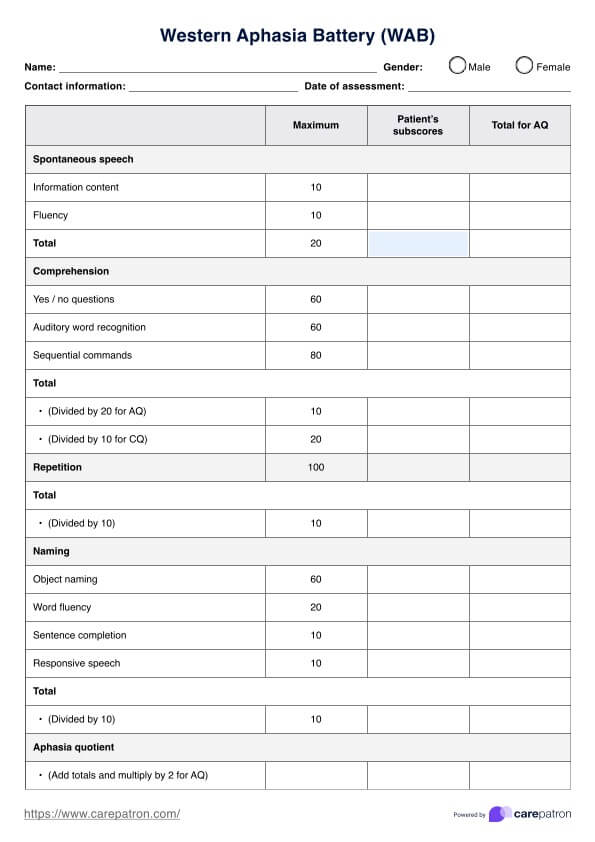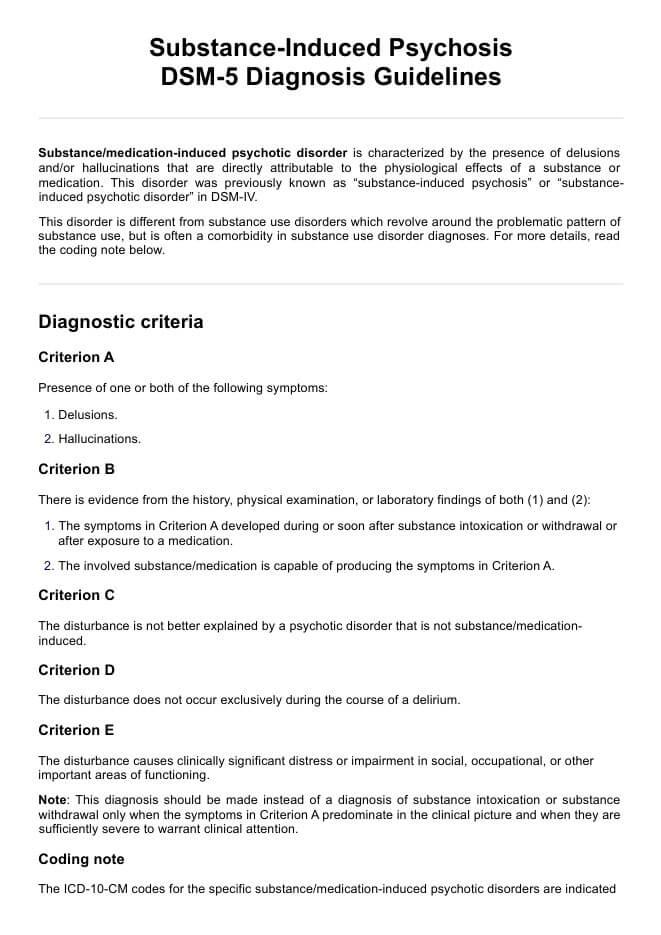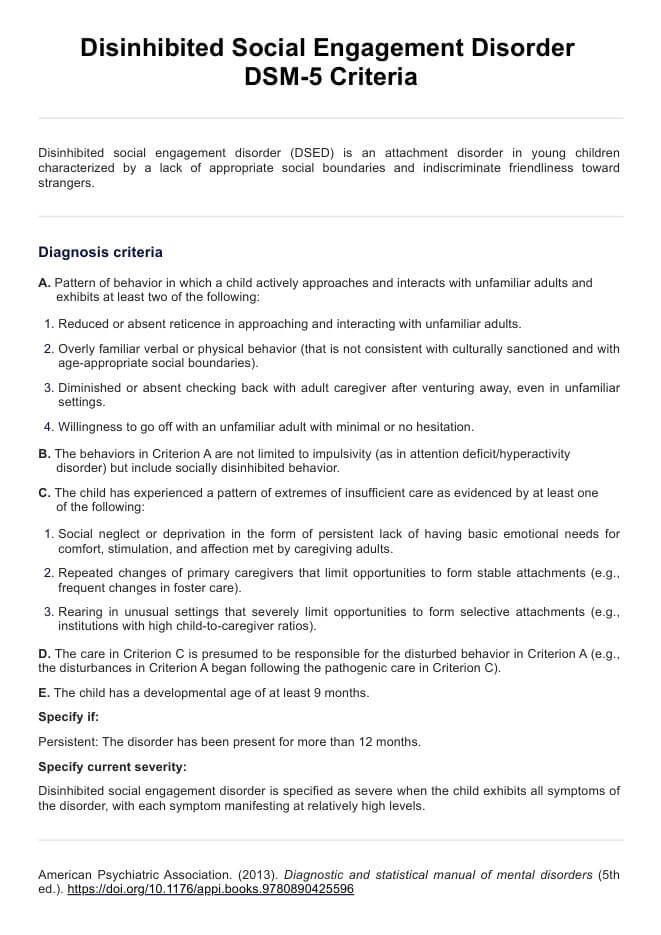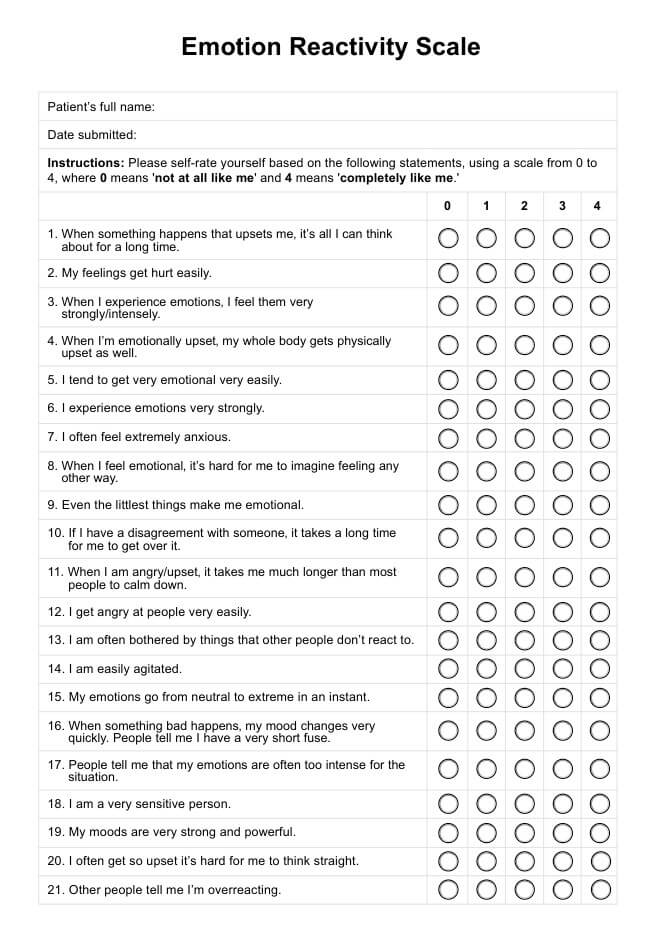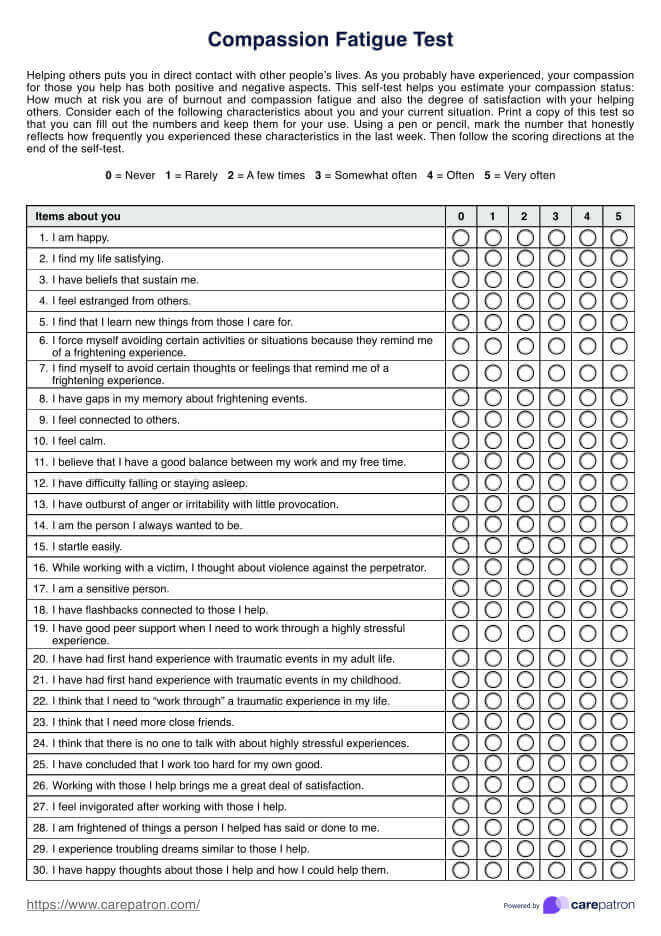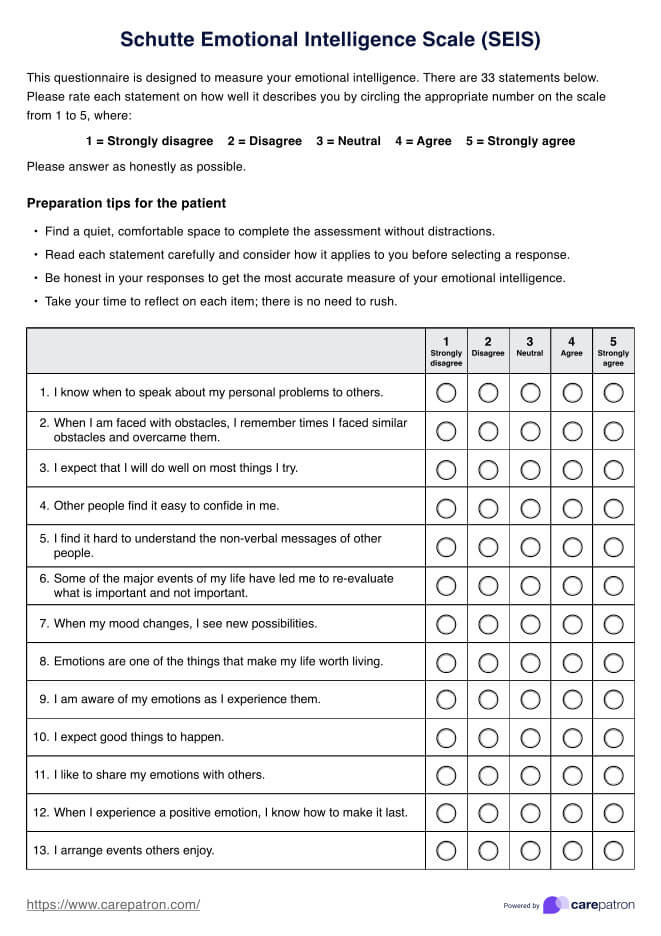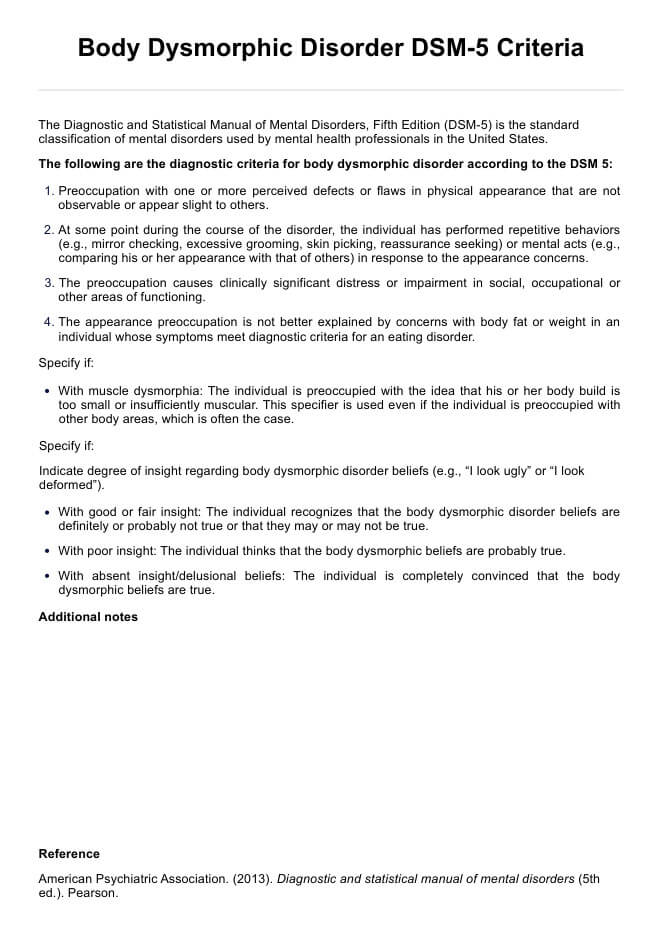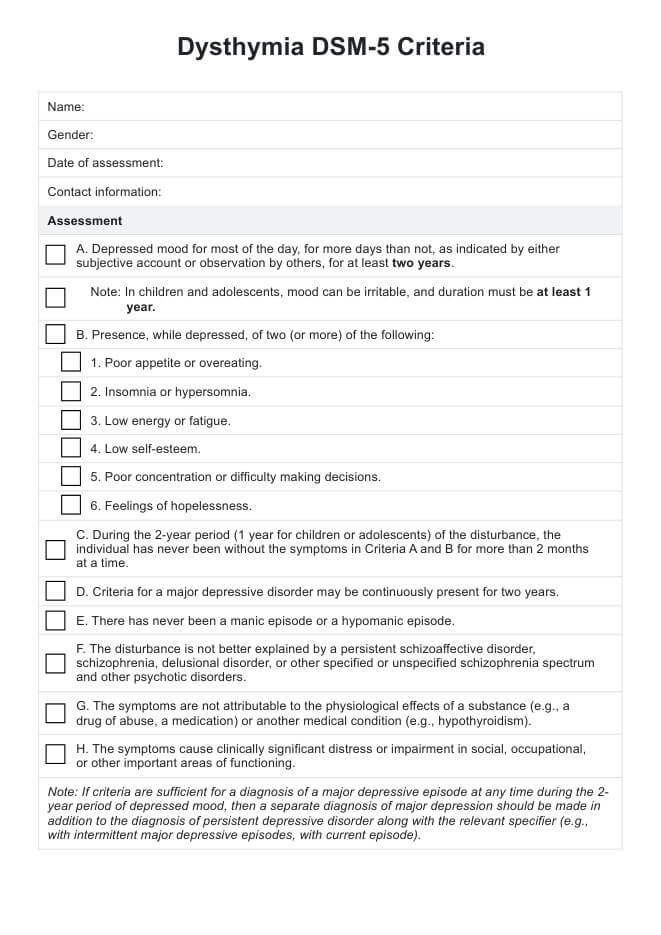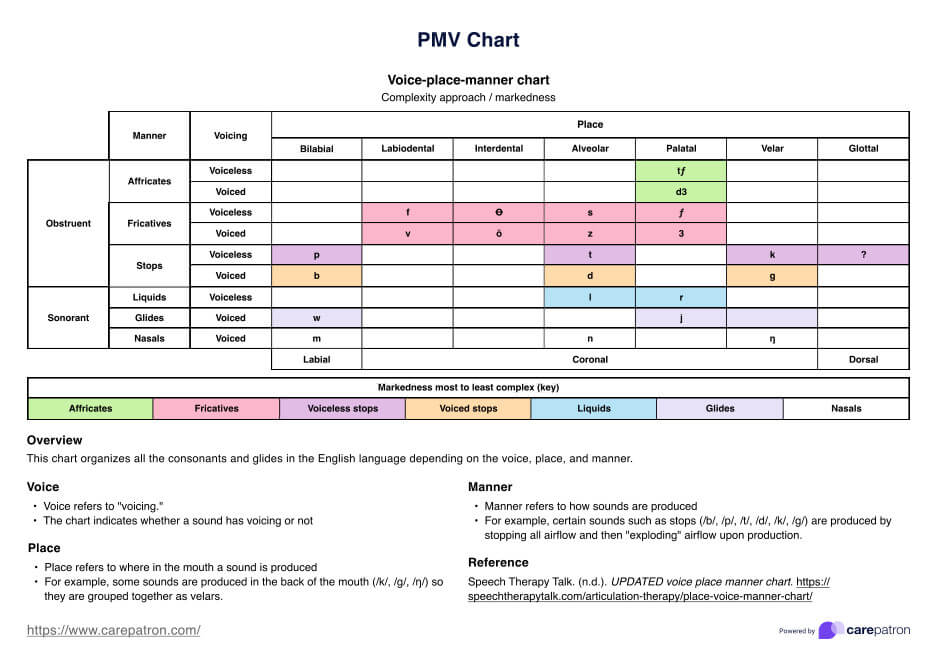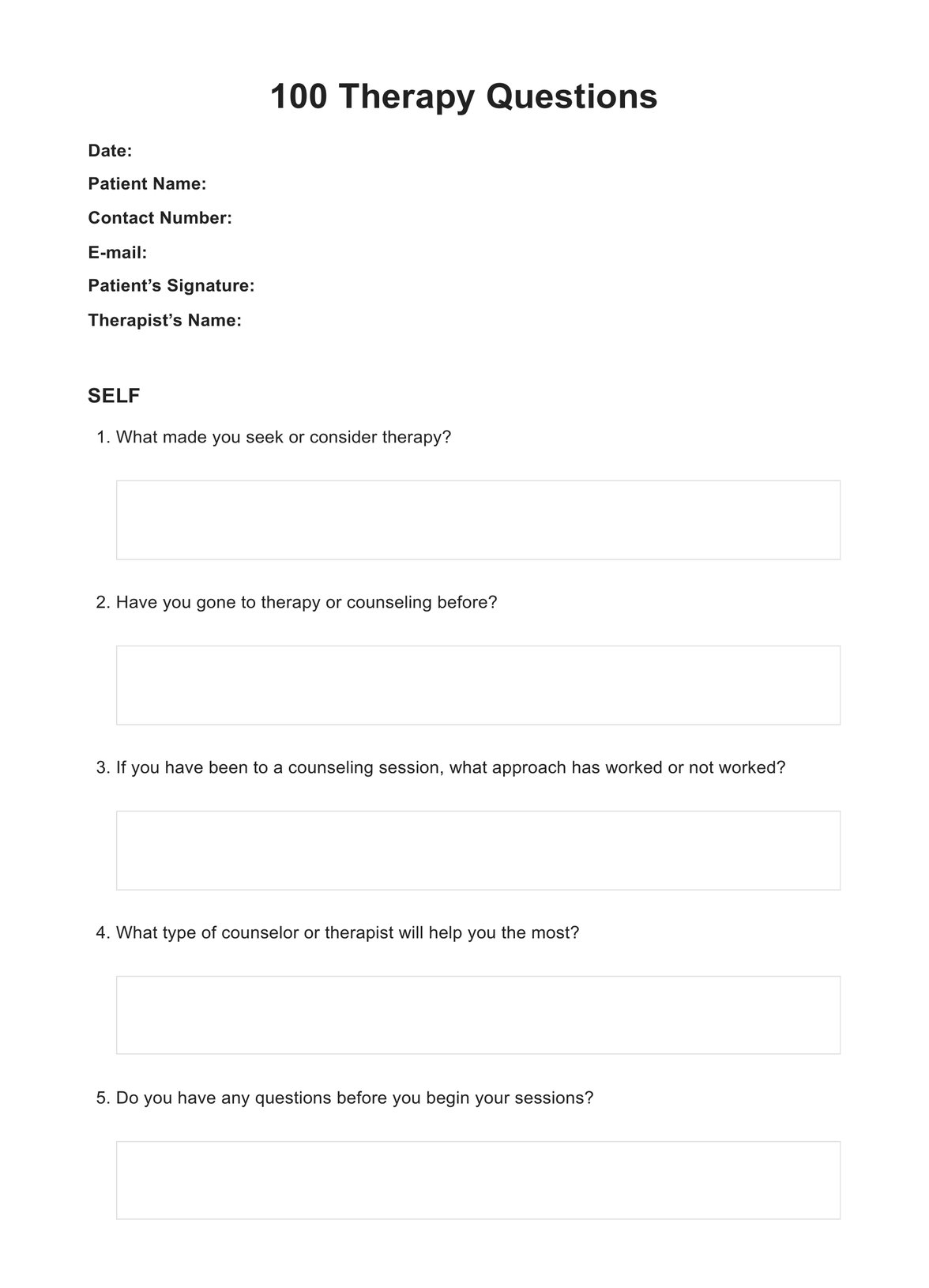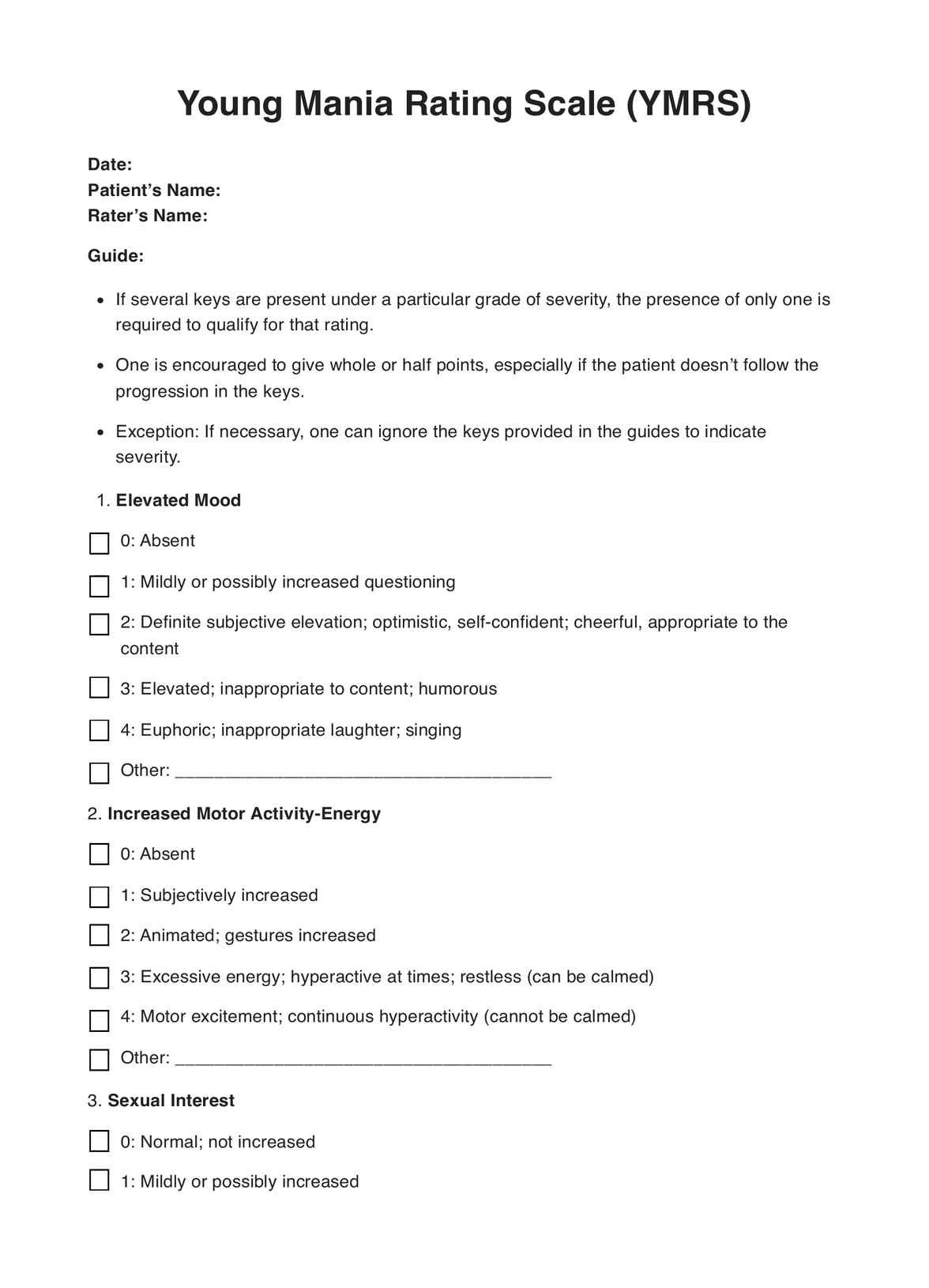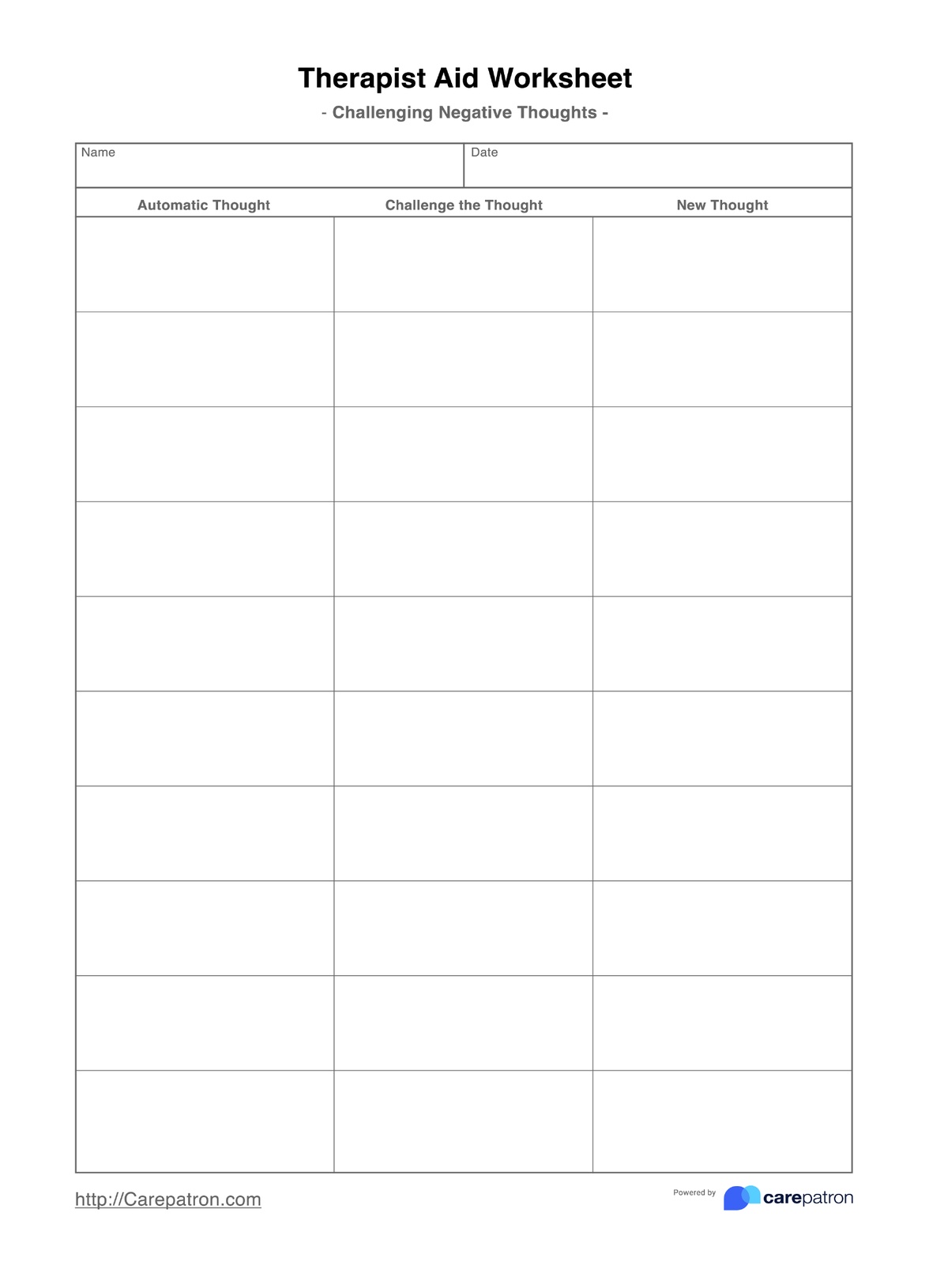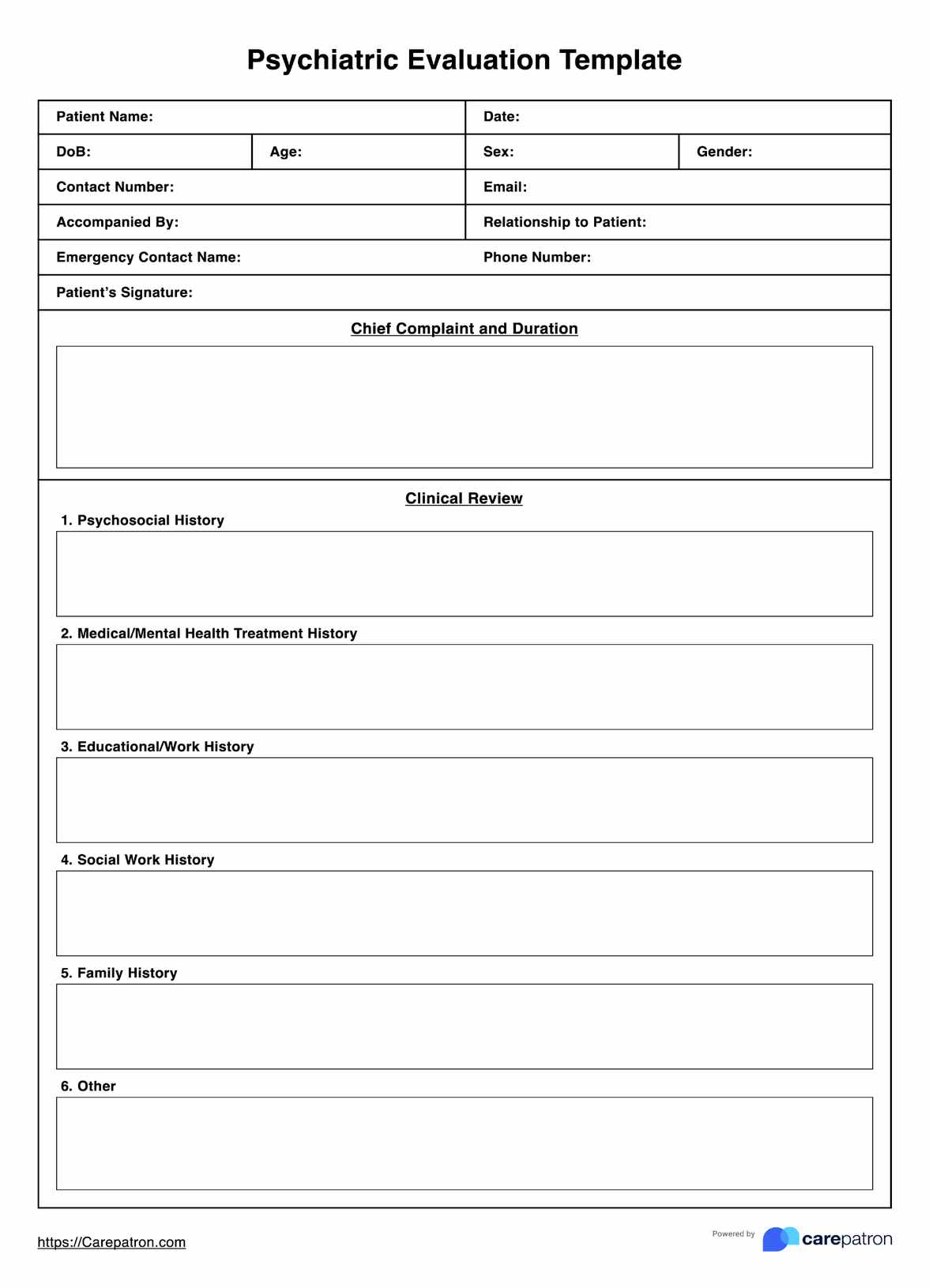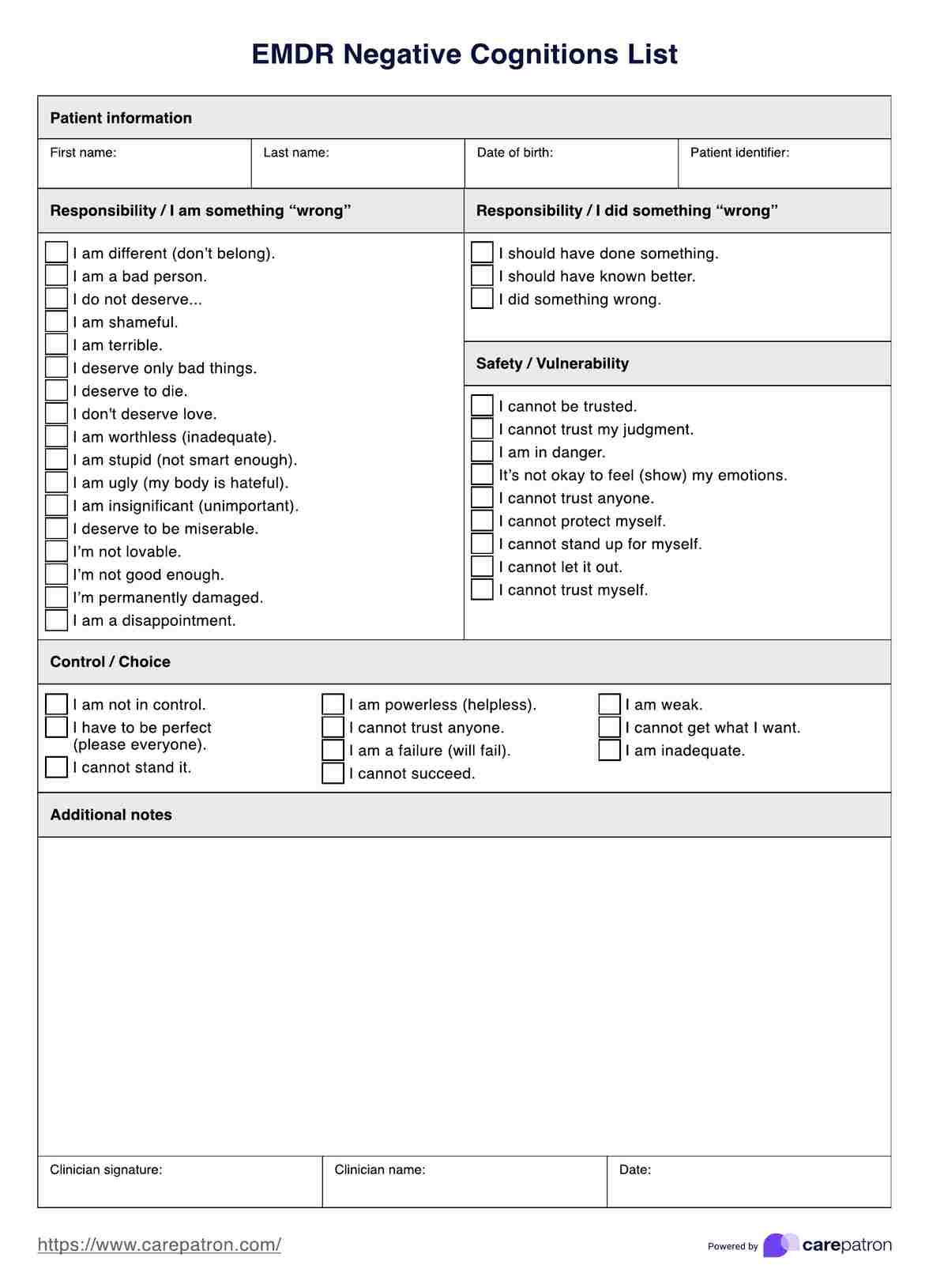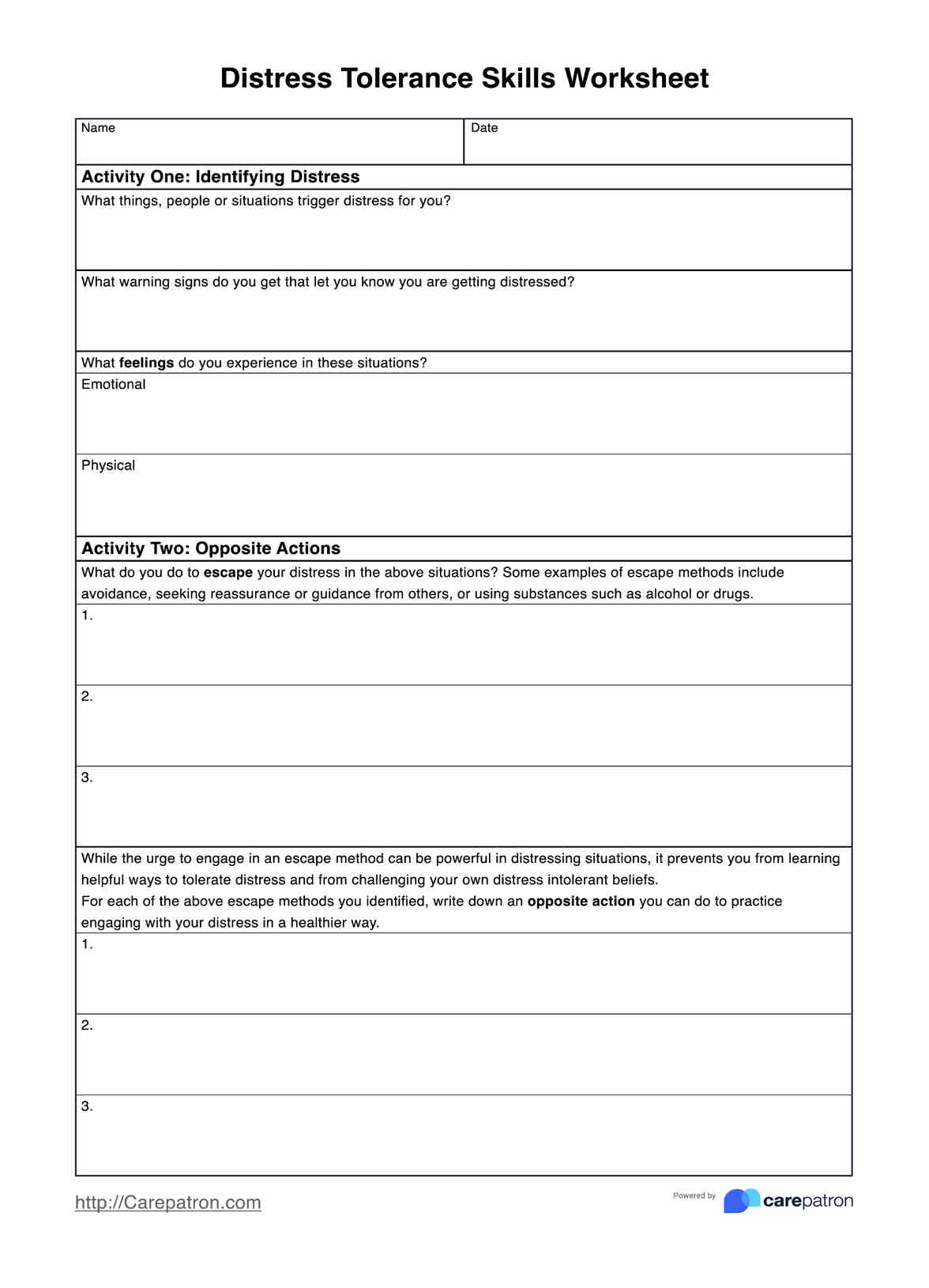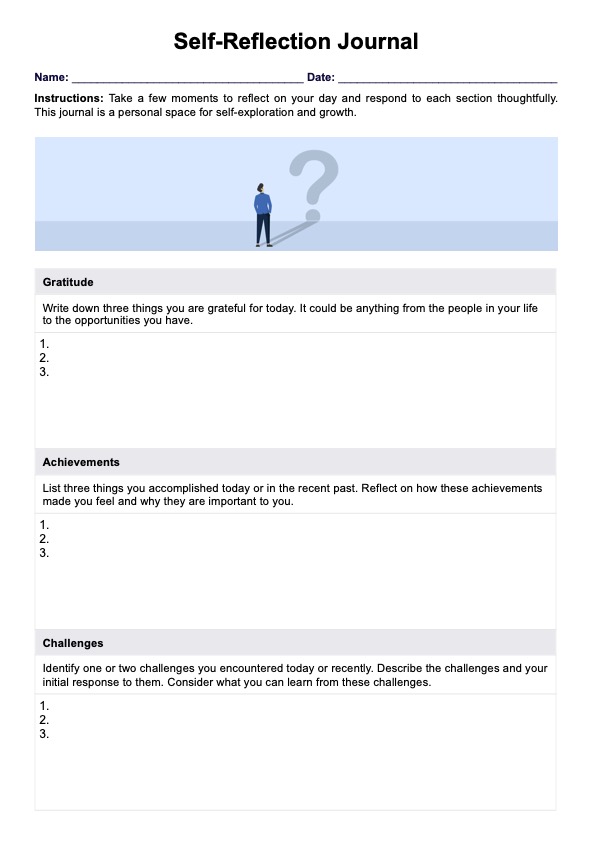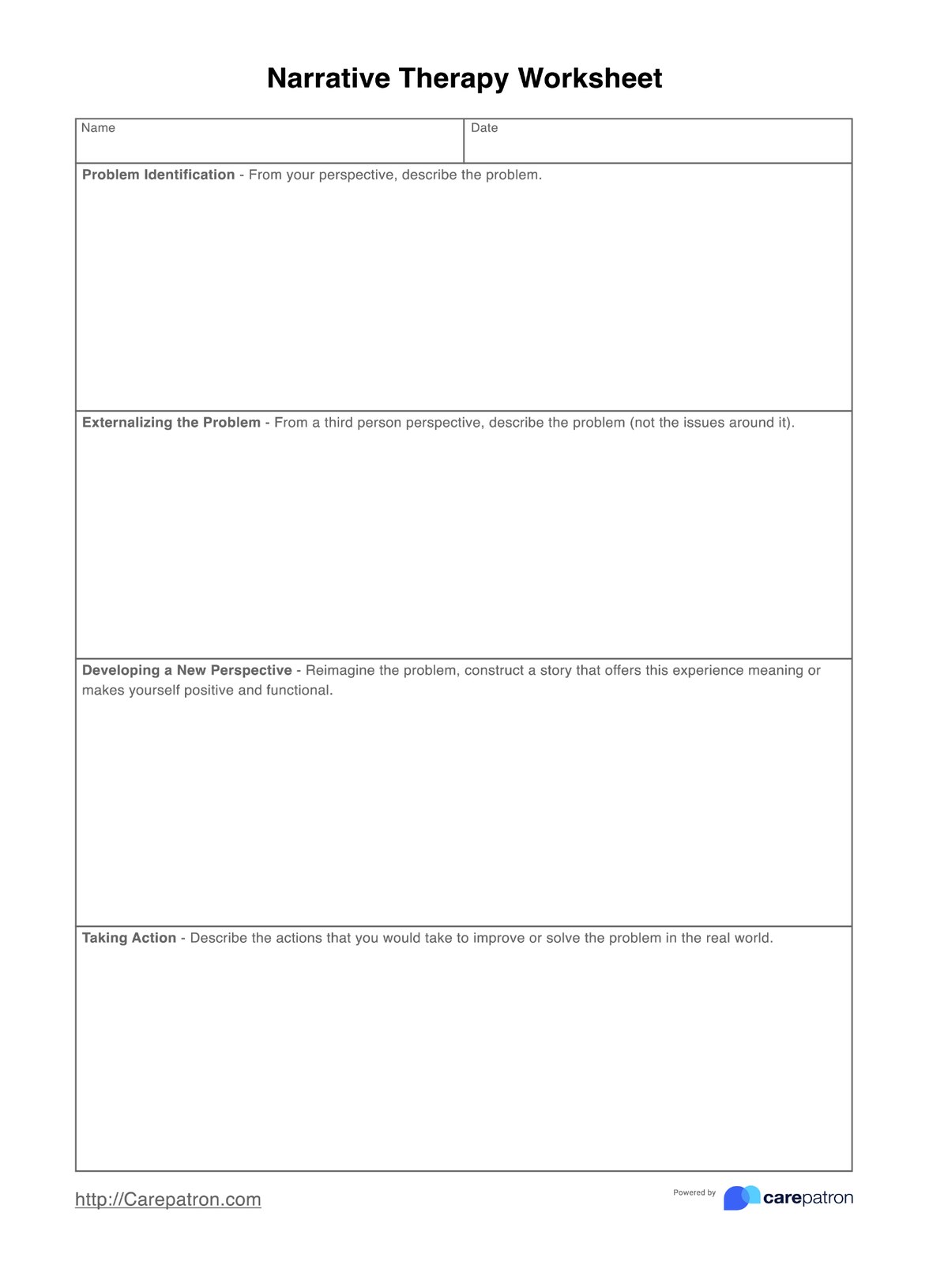Therapy Assessment
Explore our Therapy Assessment template to streamline client evaluations, ensuring comprehensive, effective mental health care.


What is a Therapy Assessment?
This tool is a thorough evaluation, similar to a patient health questionnaire, that mental health professionals conduct to understand an individual's psychological state, diagnose any disorders, and develop a tailored treatment plan. This process may involve a range of psychological assessments and mental health tests that explore various aspects of an individual's emotional, behavioral, and cognitive functioning.
The initial assessment is crucial for helping therapists customize interventions to address their client's specific needs, paving the way for positive changes in their mental health and overall well-being.
Unlike traditional psychological assessments, which may focus primarily on diagnosis, therapy intake forms aim to foster an understanding of the client's chief complaints and actively engage the client in the process. This collaborative approach supports diagnosis and treatment planning and empowers the client, boosting their motivation for change and encouraging a more active role in therapy.
The assessment process is similar to a mental health assessment. It typically involves a semi-structured approach, combining interviews and observations to gather comprehensive information about the client's mental health. It usually begins with a clinical interview to discuss the client's concerns, symptoms, and history.
The goal is to gain a holistic understanding of the client's challenges, strengths, and areas for growth, which will provide a strong foundation for effective therapeutic intervention.
Therapy Assessment Template
Therapy Assessment Example
How to use this Therapy Assessment template
By organizing and collecting all pertinent information, therapists and other mental health professionals can ensure a holistic evaluation of their shared clients. Here's a step-by-step guide on how to effectively use a Therapy Assessment template:
Step 1: Access the template
Begin by accessing the template by clicking the "Use Template" or "Download" button below. From here, customize the Therapy Assessment template to suit the specific needs of your practice and the populations you serve.
Step 2: Gather basic information
Use the template to collect basic demographic and contact information about your client. This includes name, age, contact details, and emergency contact information. Establishing this foundation is crucial for creating a comprehensive client profile.
Step 3: Document mental health history
The next section of the template should focus on the client's mental health history. This includes previous diagnoses, treatments received, hospitalizations, and any medications currently being taken. This historical perspective provides valuable context for understanding the client's current mental health status.
Step 4: Assess current symptoms
Utilize the template to conduct a detailed assessment of the client's current symptoms. This involves documenting symptoms' nature, duration, and severity and their impact on the client's daily functioning. This section is critical for identifying the immediate concerns that need to be addressed in therapy.
Step 5: Explore the client's subjective experiences
Dedicate a part of the template to exploring the client's subjective experiences, beliefs, and perceptions of psychotherapy. This can include their personal goals for therapy, their understanding of their mental health issues, and any stressors or life events contributing to their current state. This insight into the client's perspective is invaluable for tailoring the therapeutic approach to their needs.
Step 6: Conduct a risk assessment
Ensure the template includes a section for assessing any potential risks, such as persistent problems such as self-harm or harm to others. This is a critical component of the assessment process, ensuring that any immediate safety concerns are identified and addressed promptly.
Step 7: Plan for therapy
Finally, use the insights gathered through the template to outline a preliminary plan for therapy. This might include identifying therapeutic goals, potential interventions, and any further assessments or referrals that may be necessary. This plan will serve as a starting point for the therapeutic process, which will be refined as therapy progresses.
Therapy Assessment components
Therapy Assessment tools are indispensable in mental health. They provide clinicians with a structured means to evaluate and understand their clients' complex psychological landscapes. These tools, encompassing a broad spectrum of techniques, are designed to probe various dimensions of mental health and assess overall psychological well-being.
This Therapy Assessment includes important components to ensure practitioners understand their client's background in-depth. Important aspects of this resource include:
- Client information: Provides the practitioner with background information such as age, gender, and other relevant personal history
- Practitioner information: Includes details about the therapist or clinician providing the treatment, such as their title and contact information
- Presenting problem(s): Outlines the primary concerns or issues that the client is seeking help for in therapy.
- Mental health history: Outlines the client’s previous mental health diagnoses, treatments, and relevant past experiences related to mental health.
- Assessment of symptom severity: Evaluate the intensity and impact of the client’s current symptoms on their daily functioning.
- Risk identification: Identifies potential risks to the client’s well-being, such as self-harm, suicidal ideation, or other safety concerns.
- Goals for therapy: Specifies the objectives the client hopes to achieve through therapy, such as symptom relief, improved coping skills, or personal growth.
- Practitioner observations/recommendations: Summarize the therapist's observations about the client’s condition and offer suggestions for treatment or further assessment.
Next steps
After completing a Therapy Assessment, practitioners can review the gathered information, including the client's background, presenting issues, and symptom severity, to analyze any patterns and identify key areas for intervention. This information serves as the foundation for a personalized treatment plan. You may decide to offer other psychological tests, such as a clinician-administered PTSD scale, a generalized anxiety disorder scale, or a self-rating depression scale, with counseling forms for future counseling if you deem necessary.
Any immediate concerns, such as safety risks, are addressed with crisis intervention or referrals for additional support. Throughout therapy, the clinician encourages client engagement and commitment, emphasizing the importance of active participation. Periodic reassessments ensure that the treatment remains aligned with the client’s evolving needs, making adjustments as necessary to foster ongoing progress and well-being.
Commonly asked questions
Therapy assessment is a more collaborative psychological assessment process focused on understanding and treating mental health conditions, distinguishing it from more diagnostic-focused psychological assessments.
Common questions explore the client's mental health history, current symptoms, coping mechanisms, and the impact of their condition on daily life.
Tips include being thorough yet concise, focusing on the client's subjective experiences, and highlighting key observations and test results that will guide the therapeutic process.


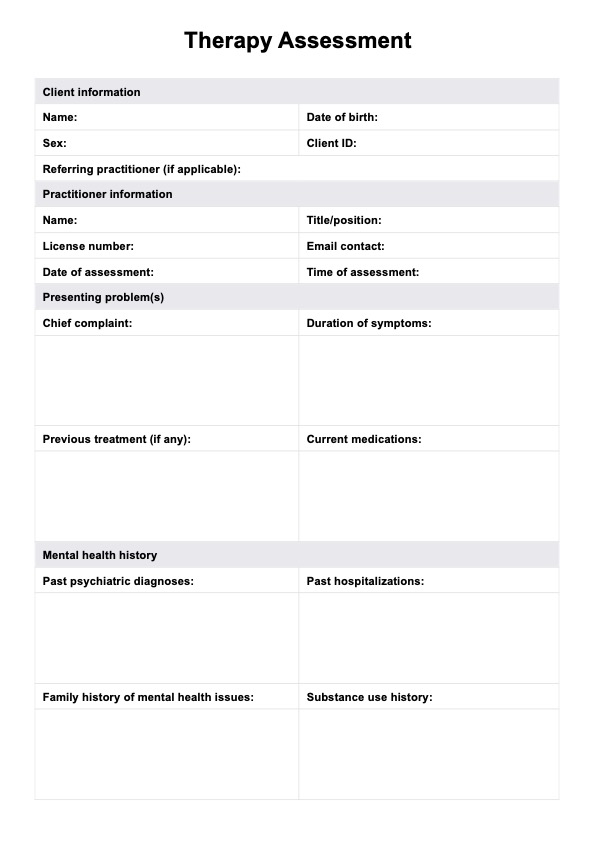
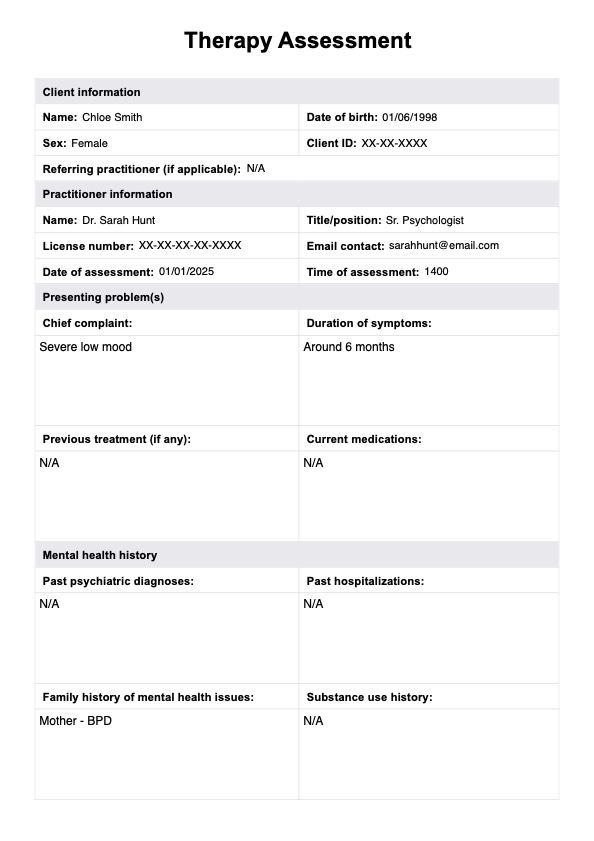

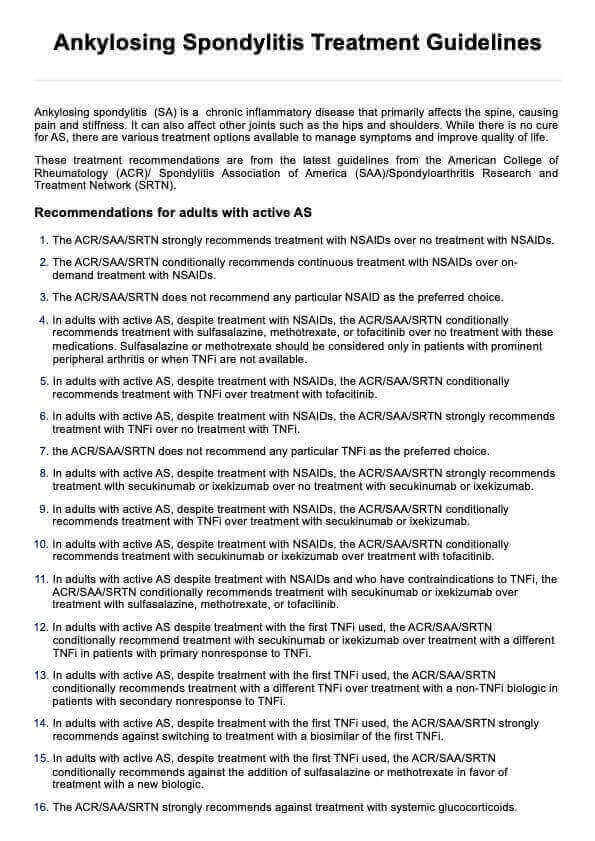
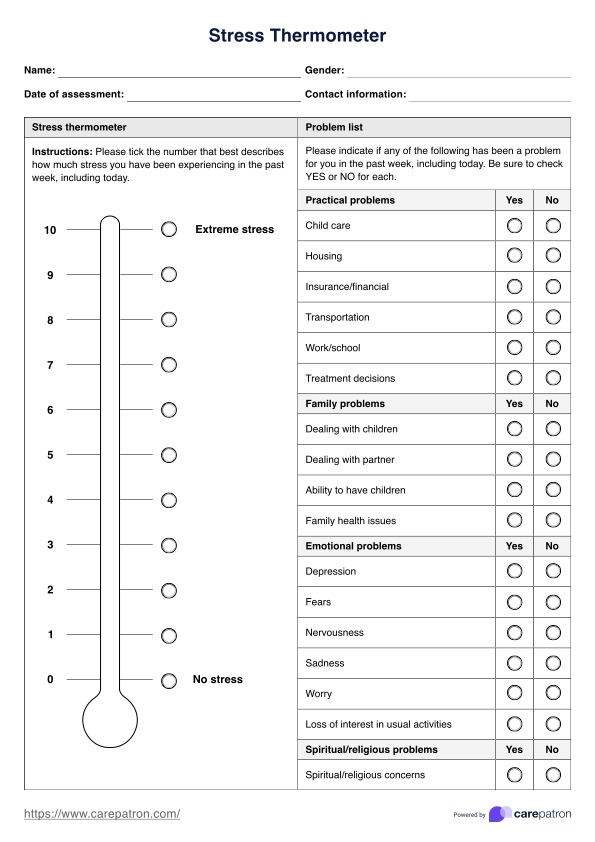
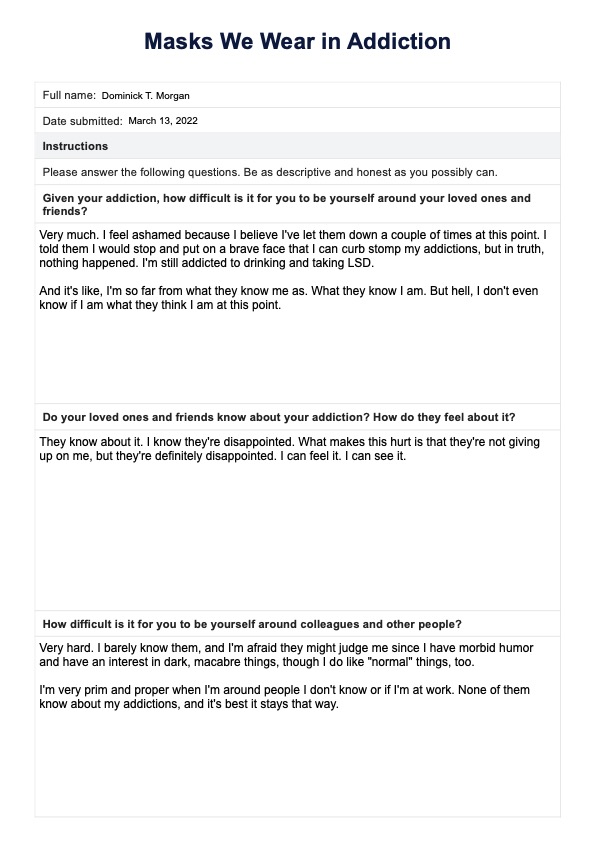








-template.jpg)















































